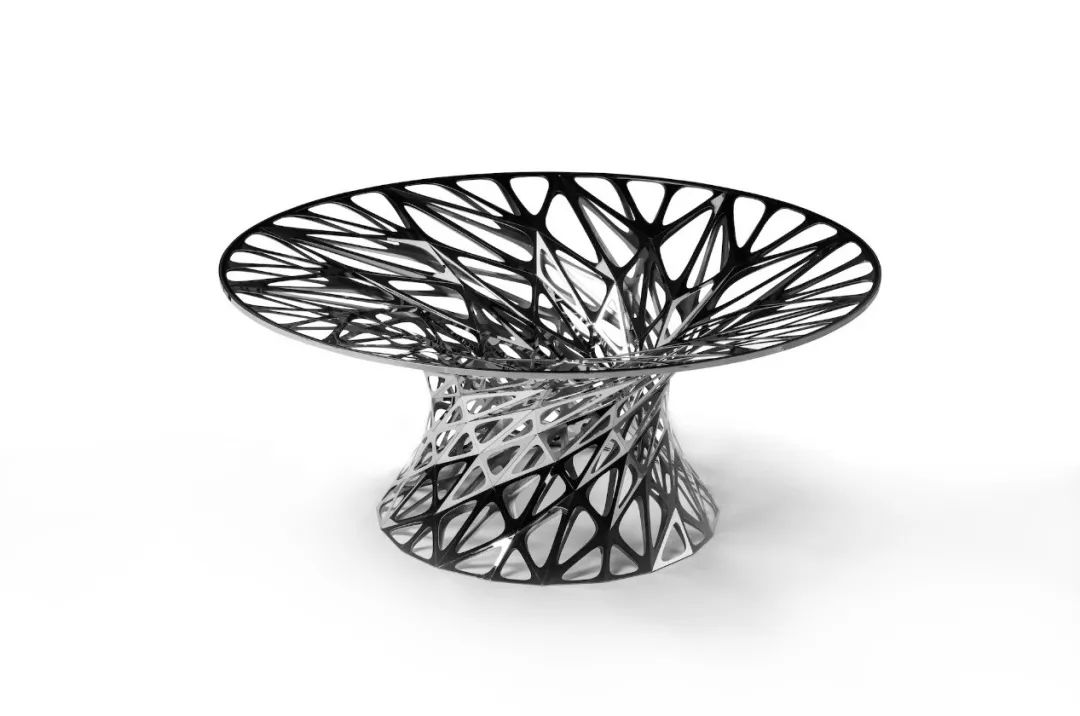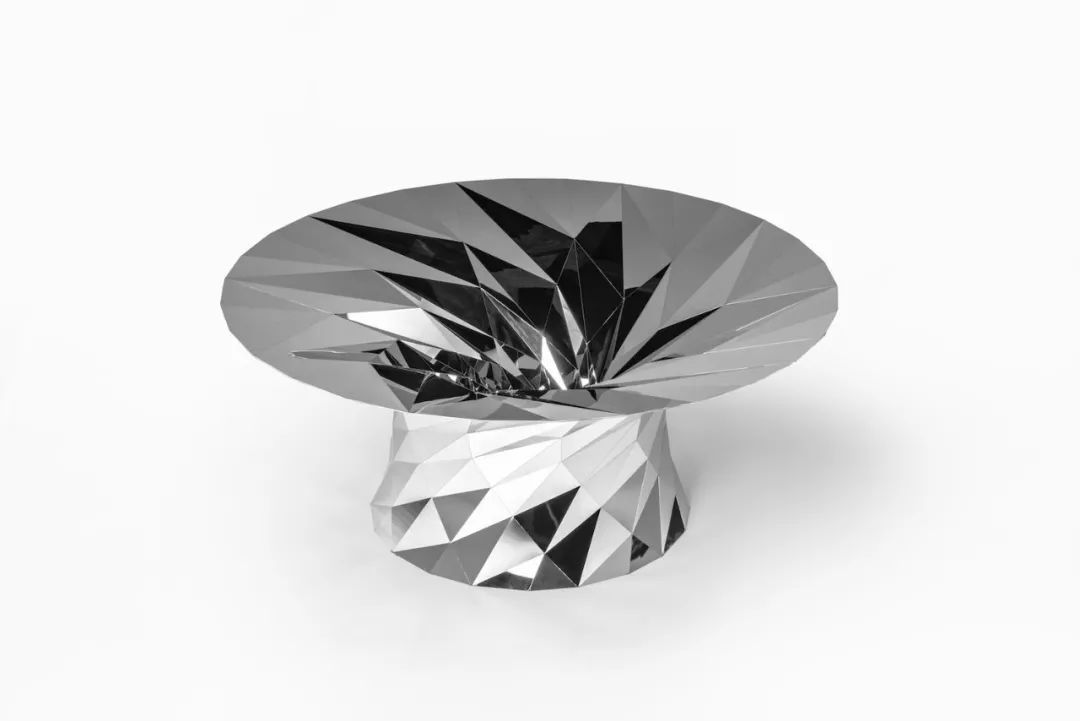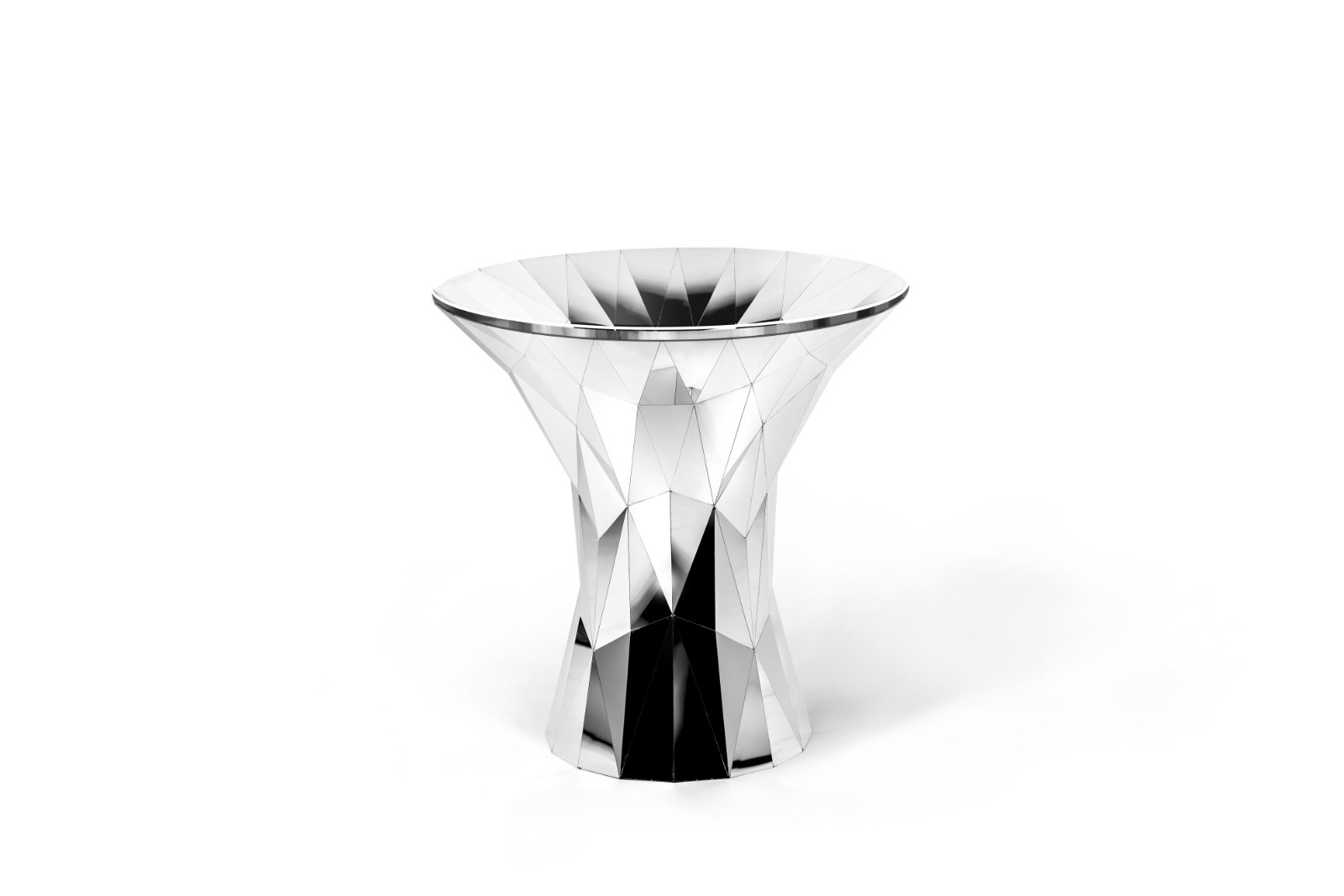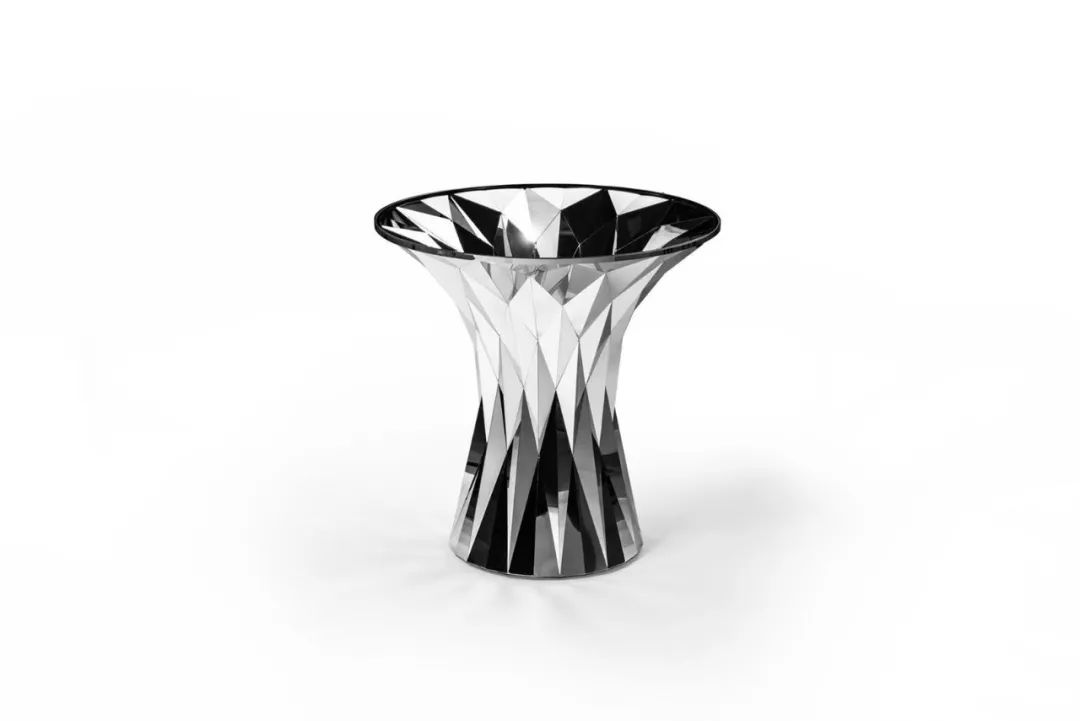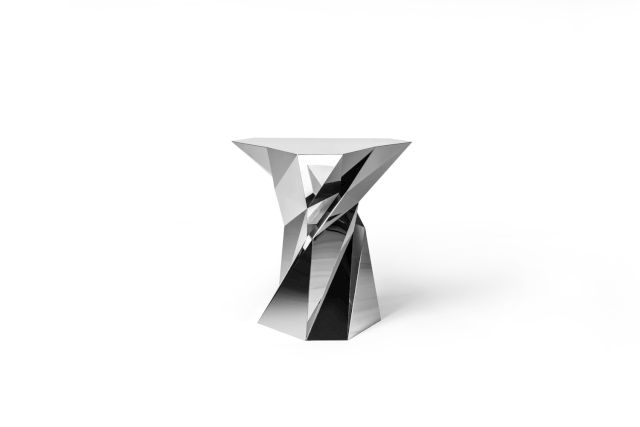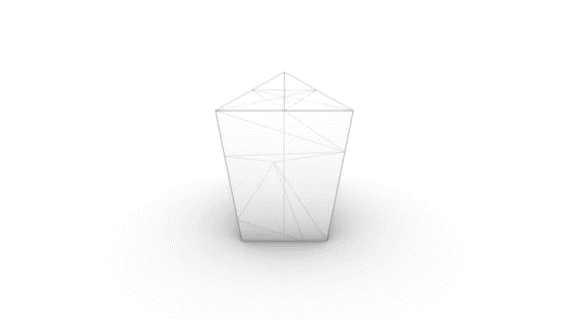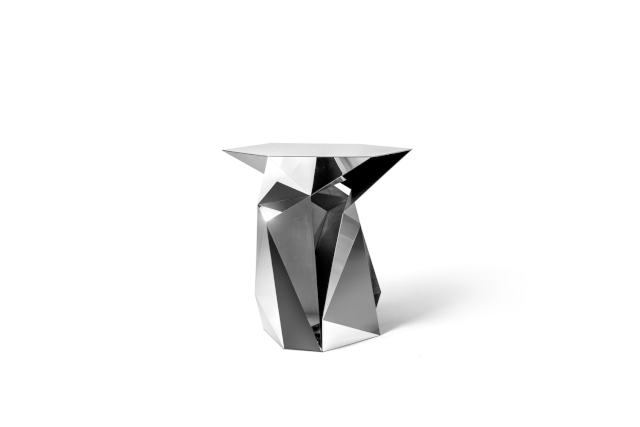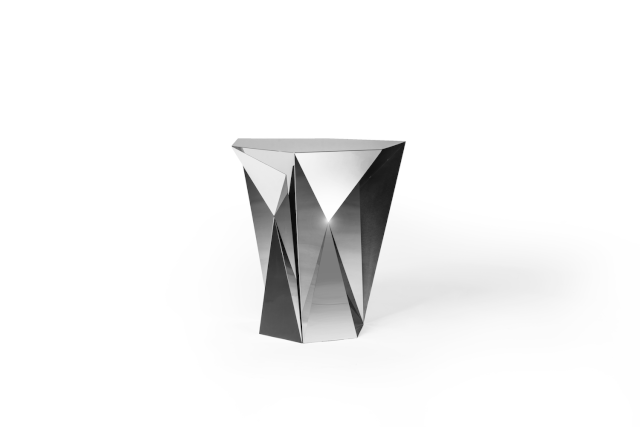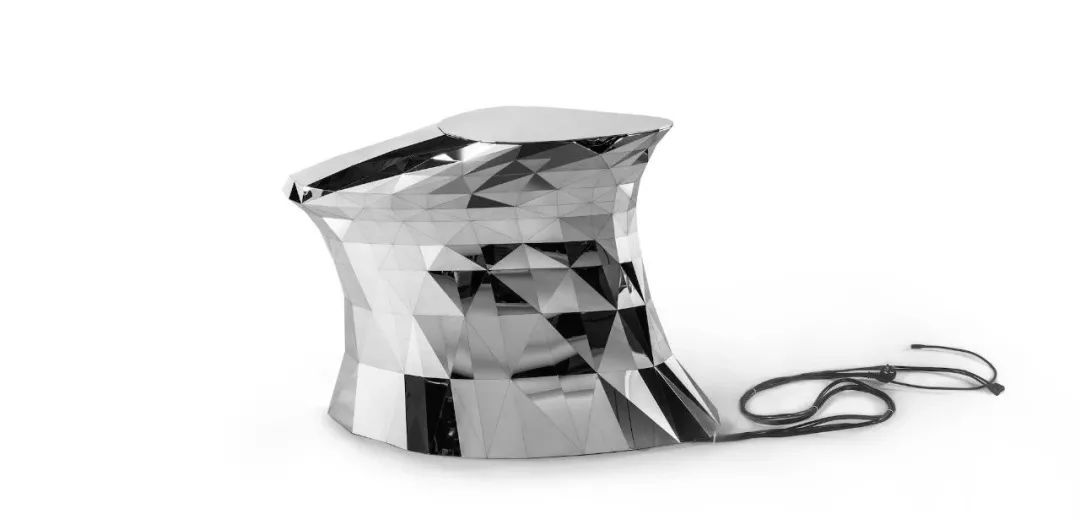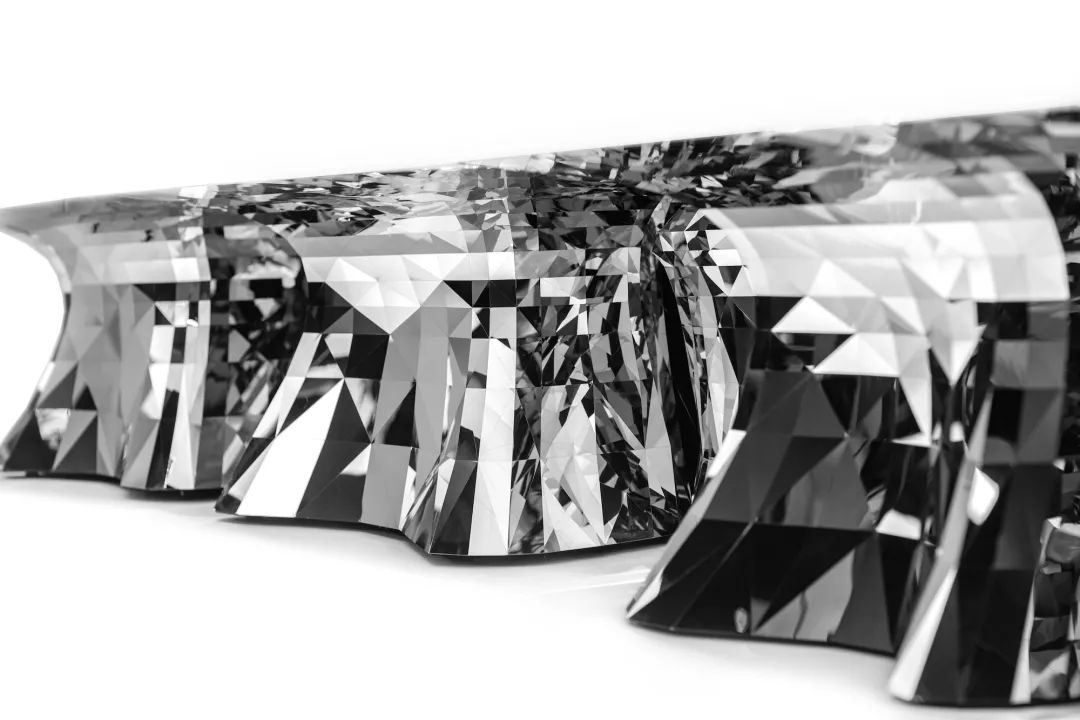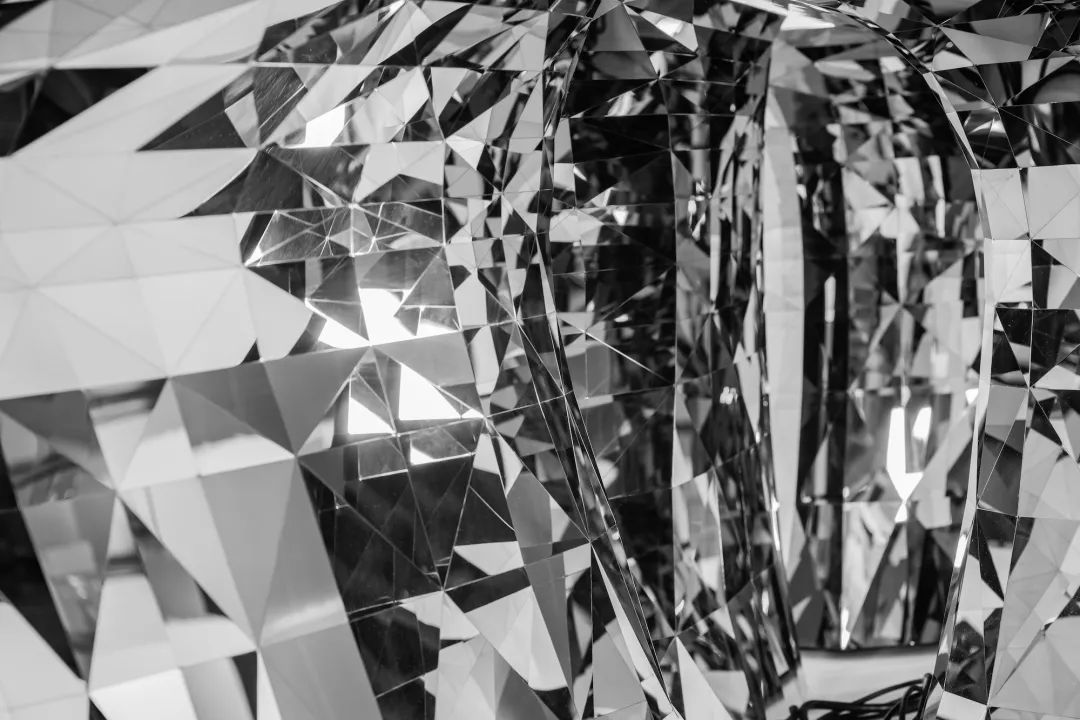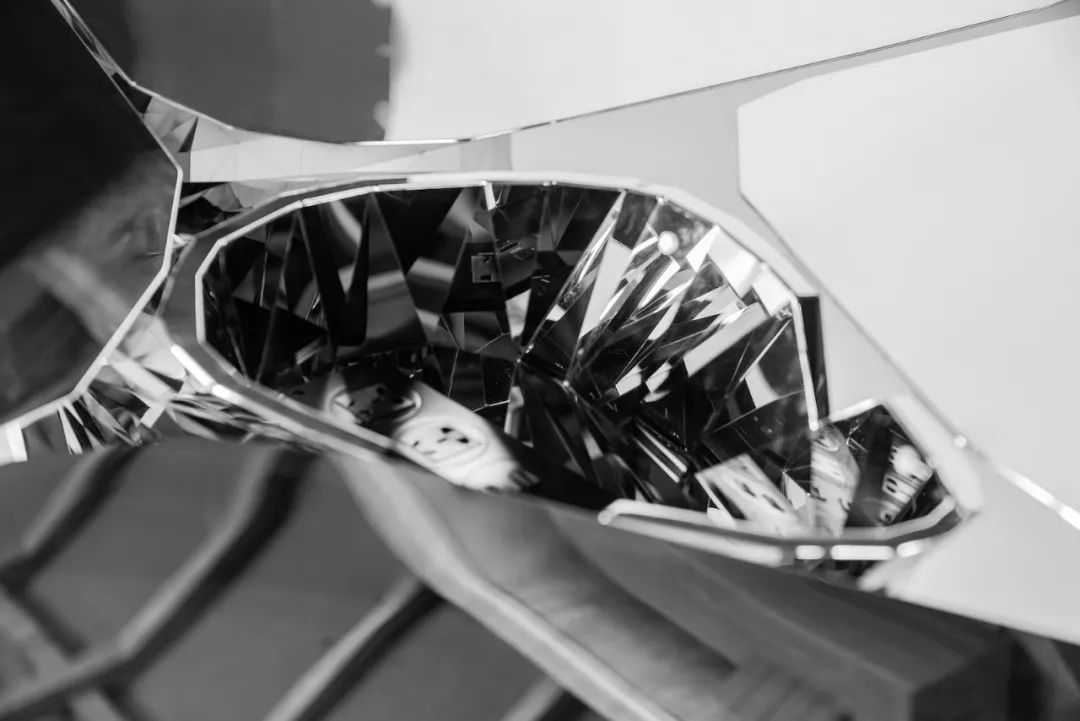算法适用性|Tables?几桌?张周捷全新作品正式亮相Fab-Union
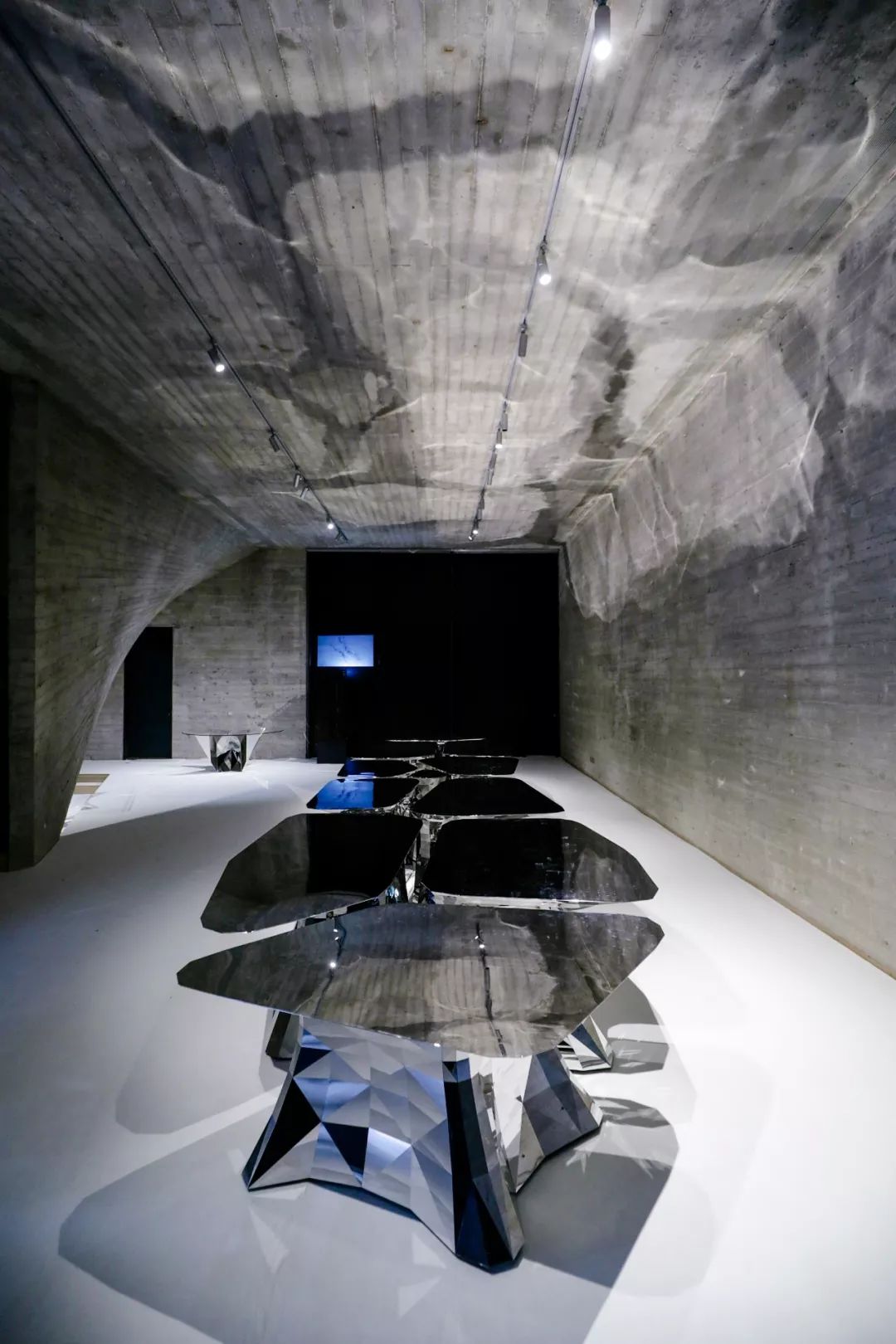
“几桌?”似一个用餐订座的疑问,其实引向一个有关家具定义的问题——是桌子还是茶几,是由什么决定的?人会说是由体态与尺寸决定的,小为茶几,大作桌子。历来桌与几千千万,是人类日常家具的必需,四脚支撑,平整一面,成桌;平台立起,有地置物,称几。桌几的功能似乎是简单的,却仍在千万设计师的手中层出不穷,“设计”的区别更多体现在形态与尺寸上。当这份人为的差异进入计算机的思维,答案会是无止尽的——有多么无限?在这场名为“Tables?几桌?”的展览上便会知晓。独立设计师兼数字艺术家张周捷在一系列备受瞩目的公共雕塑、动态艺术装置及座椅、果盘等功能性器物之后,带来全新一组具有“桌与几”家具属性的作品。2019年11月1日,张周捷数字实验室全新个展“几桌?Tables?”正式亮相Fab-Union Space,展至11月24日。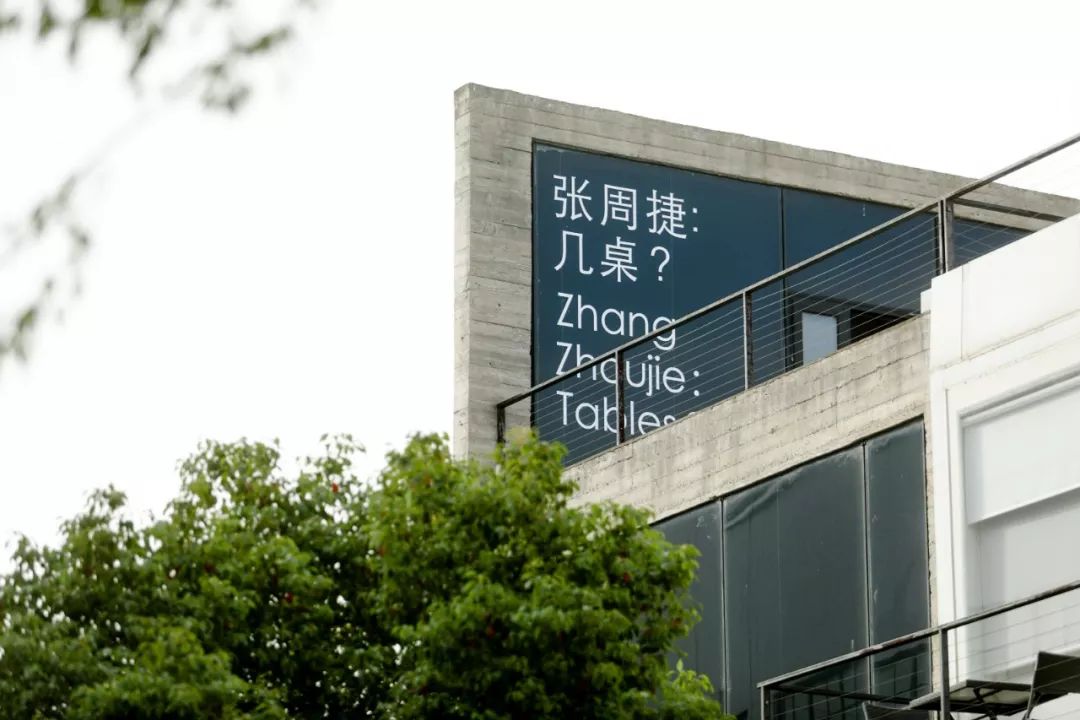
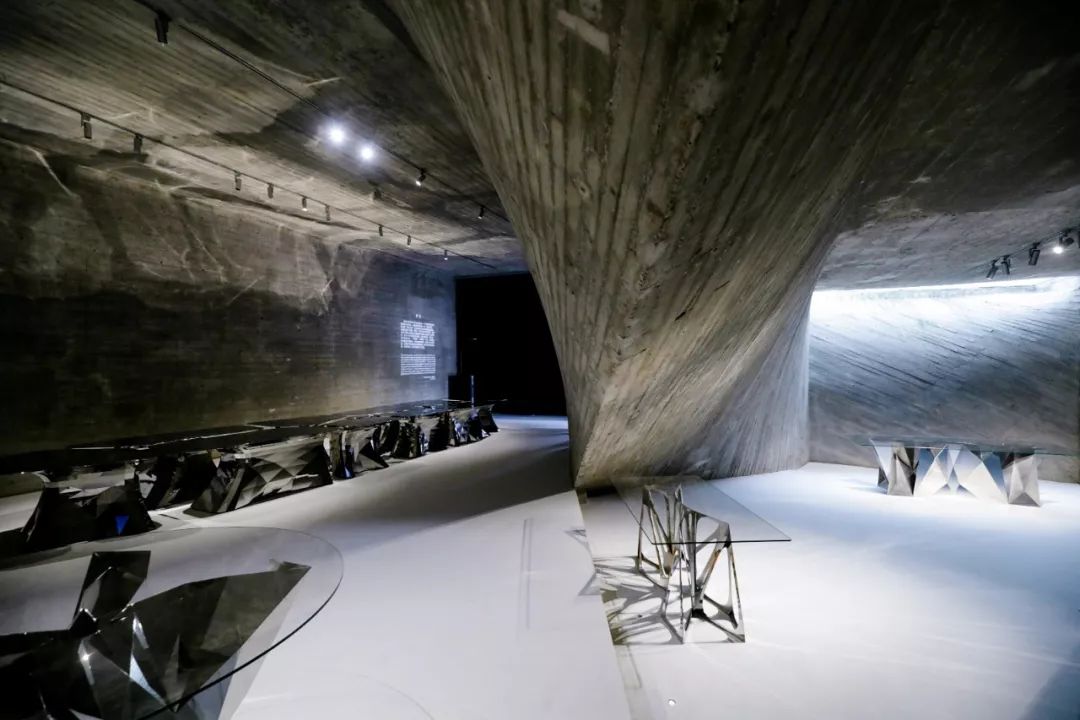
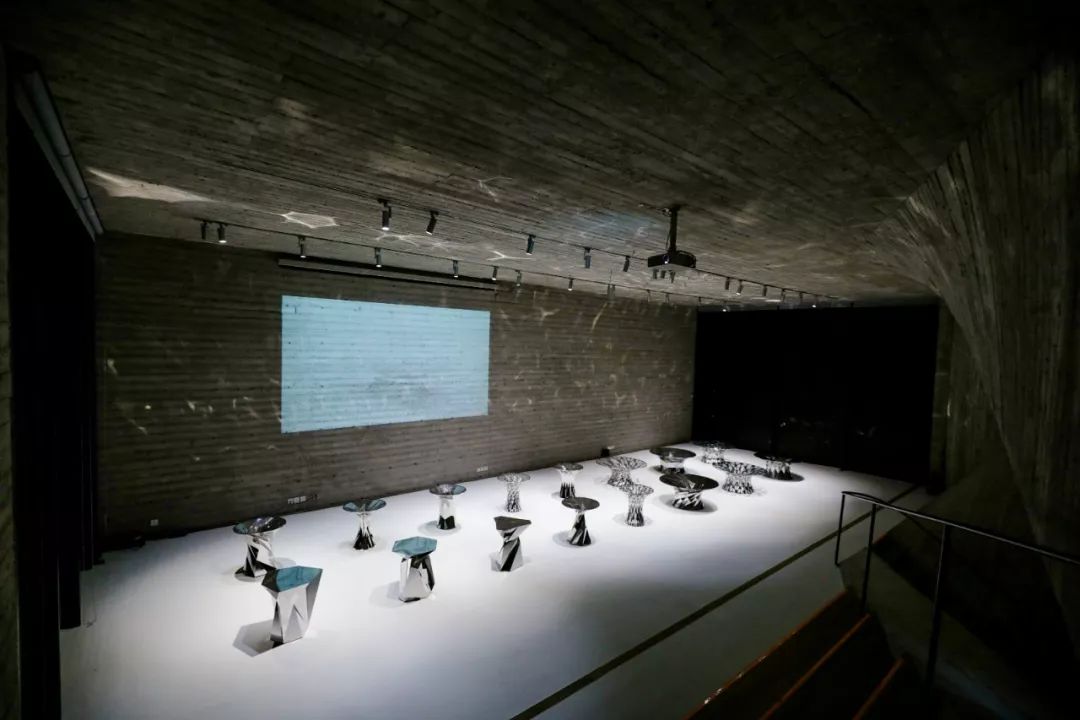
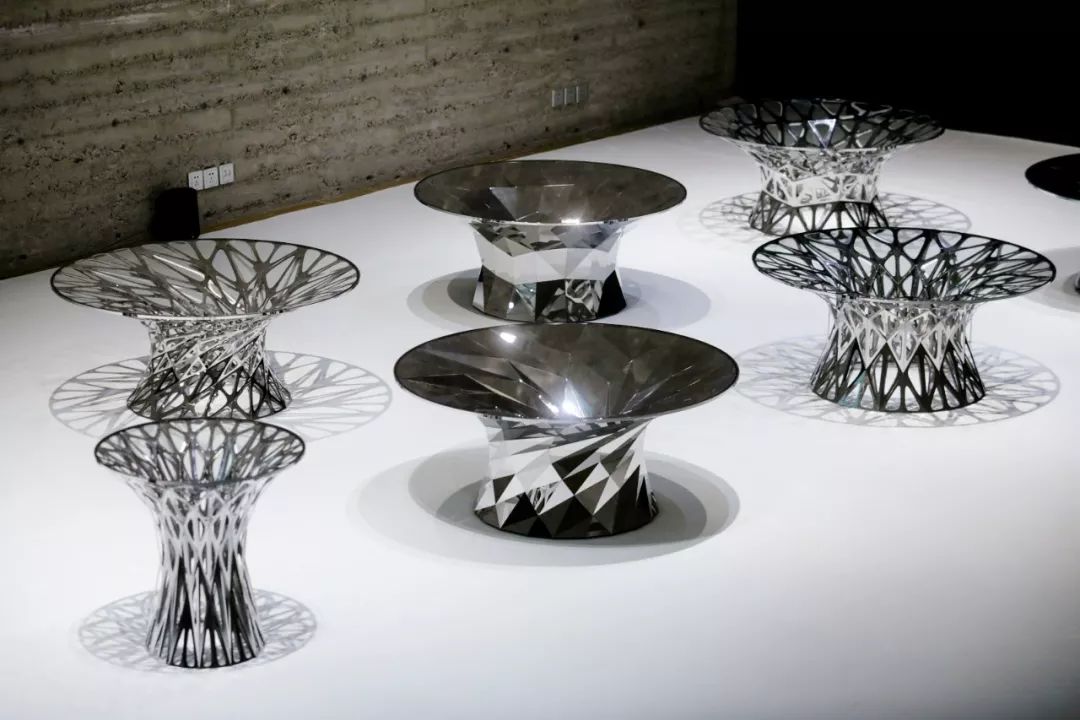
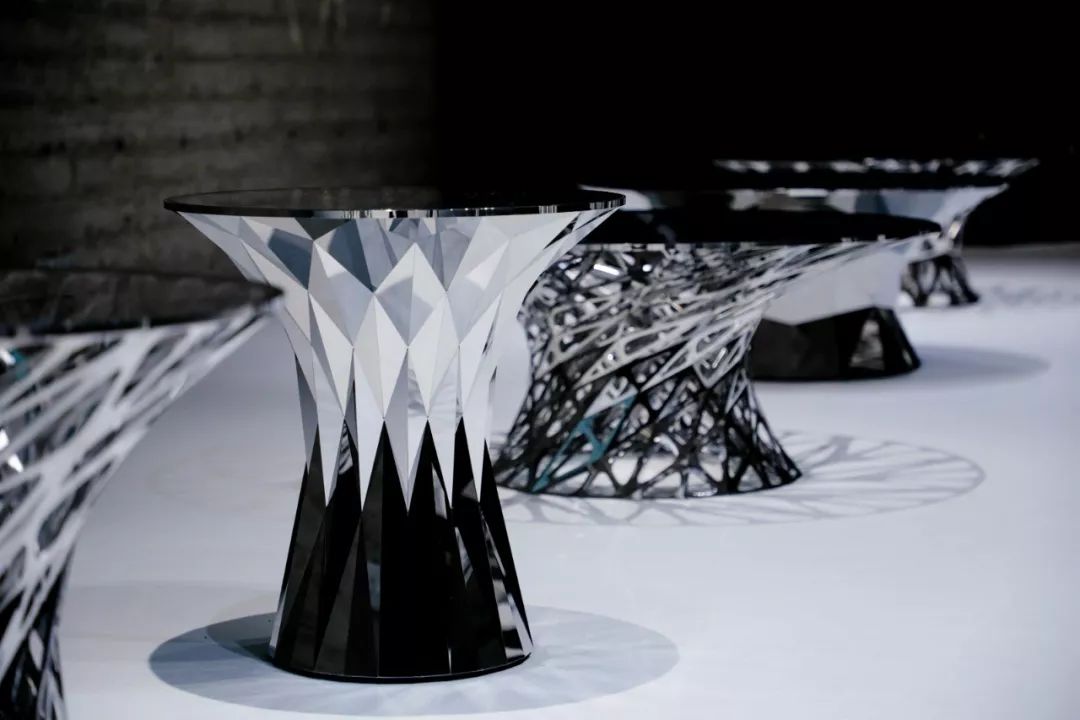
在本次展出的最新作品中,经常会被忽略的桌腿结构被重新定义。改变了约定俗成的四腿或三腿稳定结构,桌腿与桌面不再由独立的两部分组合而来,而是让桌腿自然延展形成桌面的形状,桌子结构成为一个统一的有机体,由计算机生成。张周捷秉持自身专业的数字创造思维,悉数归纳了现有常见的桌几形式,最终总结出数种适于人们使用、并耐受制造流程的桌腿结构“逻辑”:分别是 Mesh Symmetry(镜像桌)、Mesh Tornado (漩涡桌)、Mesh Voronoi(细胞桌)等几种逻辑方式。
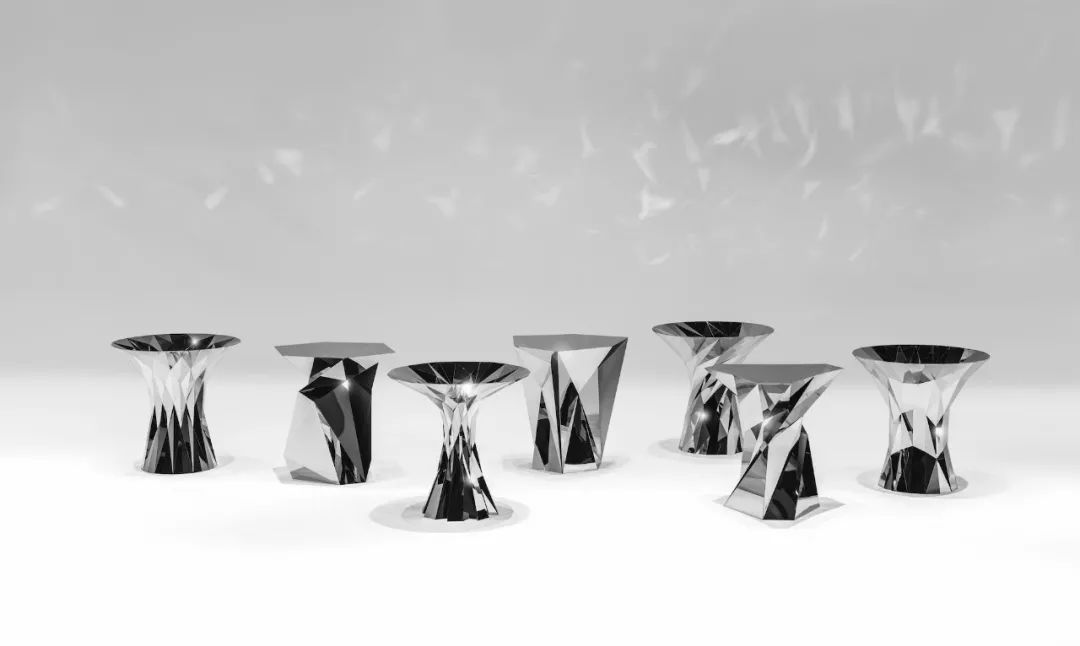
其中基于柱状逻辑的茶几(Mesh Tornado)作品或许最能反映数字设计的有机变化。其结构呈近似螺旋状地盘旋上升,最终向外展开,如同一株花束绽放,自然形成支撑桌面的骨架。这种结构可以在自然界,尤其是树木的生长逻辑里找到回响。树木冲天立地,稳稳落定,茶几的结构也是如此,从底部到顶端的自然“生长”结构就像根须向上长成树干那般浑然天成。这样也便形成了茶几自身的稳固性。三维结构内在还有几种变化方式,既有内外双层的镂空三角面,也有三角面融合曲面连绵成型,不同的三维结构独具数字语言美感,更在实际制造中被金属不锈钢彰显魅力。伴随改变对螺旋扭转直径的设定,小茶几也能扩大为圆桌,形式的可能性无穷。这令整个系列可以适应迥异的定制需求。
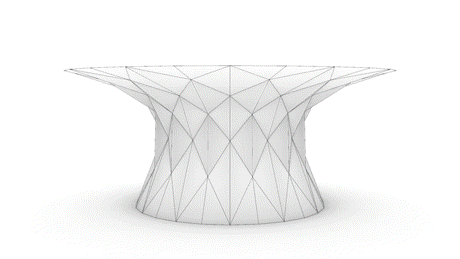

OBJECT #MT-T1-F-L (Mesh Tornado 旋涡桌)
材质: 304镜面不锈钢、低反射玻璃
尺寸:L107 D107 H46 cm
限量版:10P (8P+2AP)
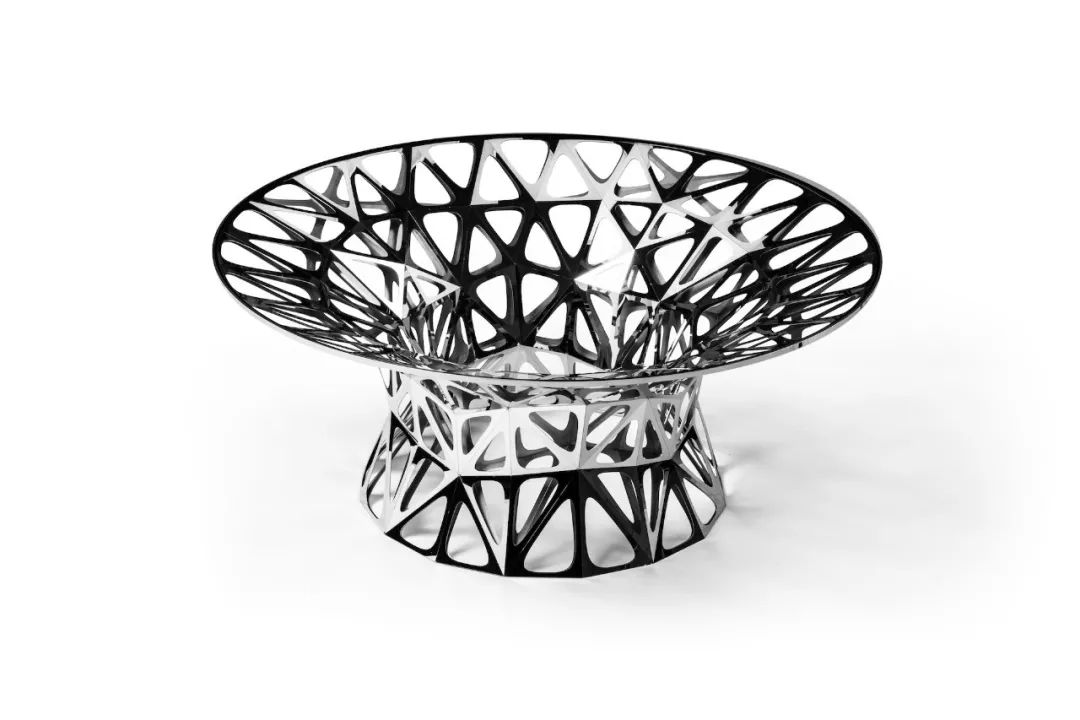
OBJECT #MT-T2-F-L (Mesh Tornado 旋涡桌)
材质:304镜面不锈钢、低反射玻璃
尺寸:L107 D107 H46 cm
限量版:10P (8P+2AP)
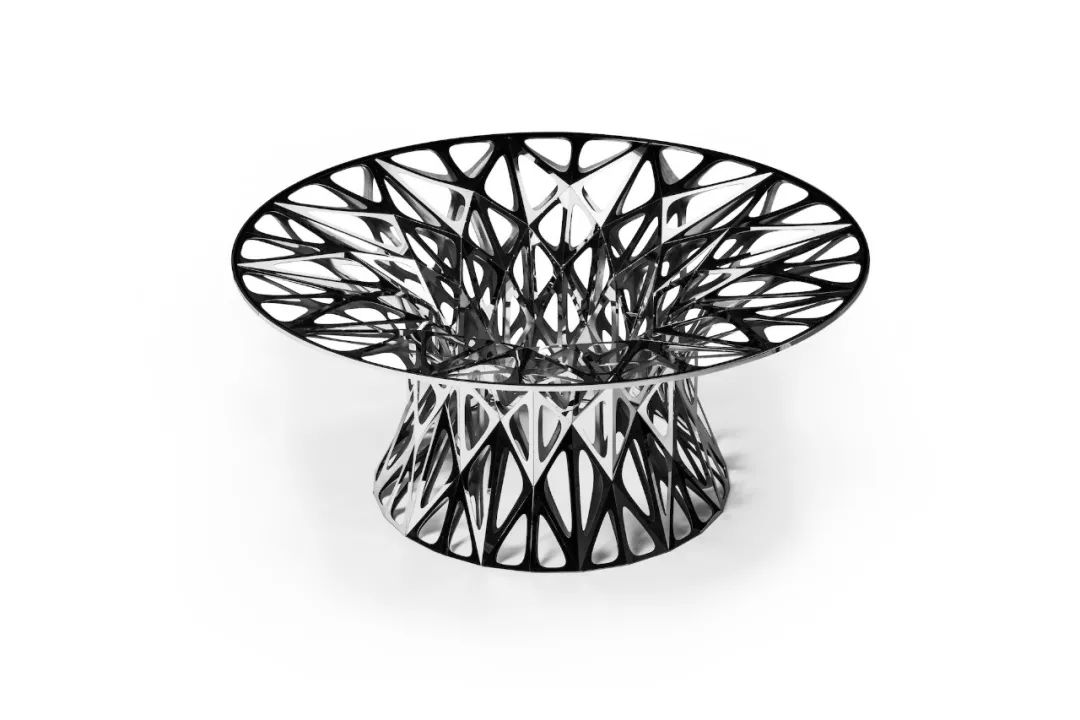
OBJECT #MT-T3-F-L (Mesh Tornado 旋涡桌)
材质:304镜面不锈钢、低反射玻璃
尺寸:L107 D107 H46 cm
限量版:10P (8P+2AP)
OBJECT #MT-T1-S-L(Mesh Tornado 旋涡桌)
材质:304镜面不锈钢、低反射玻璃
尺寸:L107 D107 H46 cm
限量版:10P (8P+2AP)
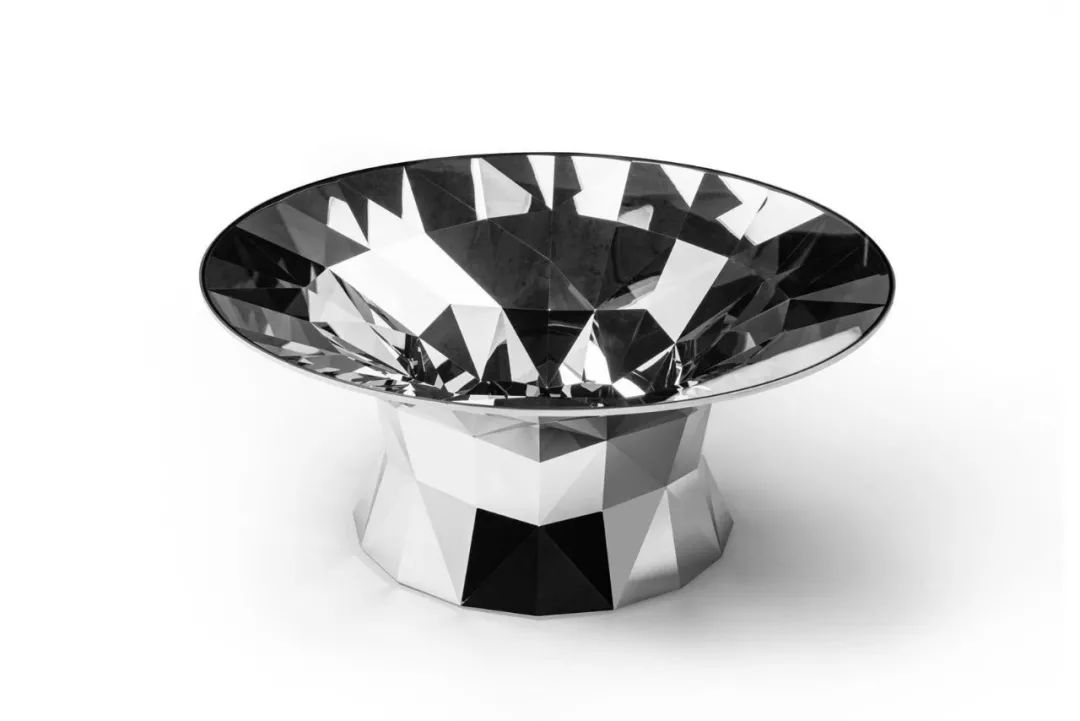
OBJECT #MT-T2-S-L(Mesh Tornado 旋涡桌)
材质:304镜面不锈钢、低反射玻璃
尺寸:L107 D107 H46 cm
限量版:10P (8P+2AP)
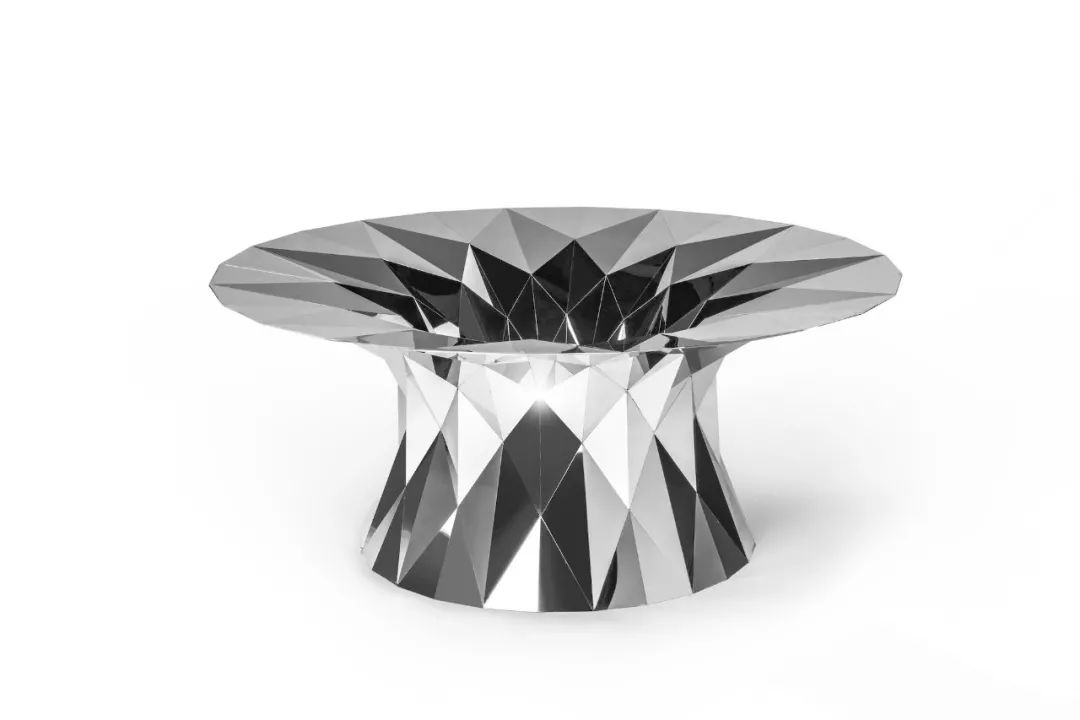
OBJECT #MT-T3-S-L (Mesh Tornado 旋涡桌)
材质:304镜面不锈钢、低反射玻璃
尺寸:L107 D107 H46 cm
限量版:10P (8P+2AP)
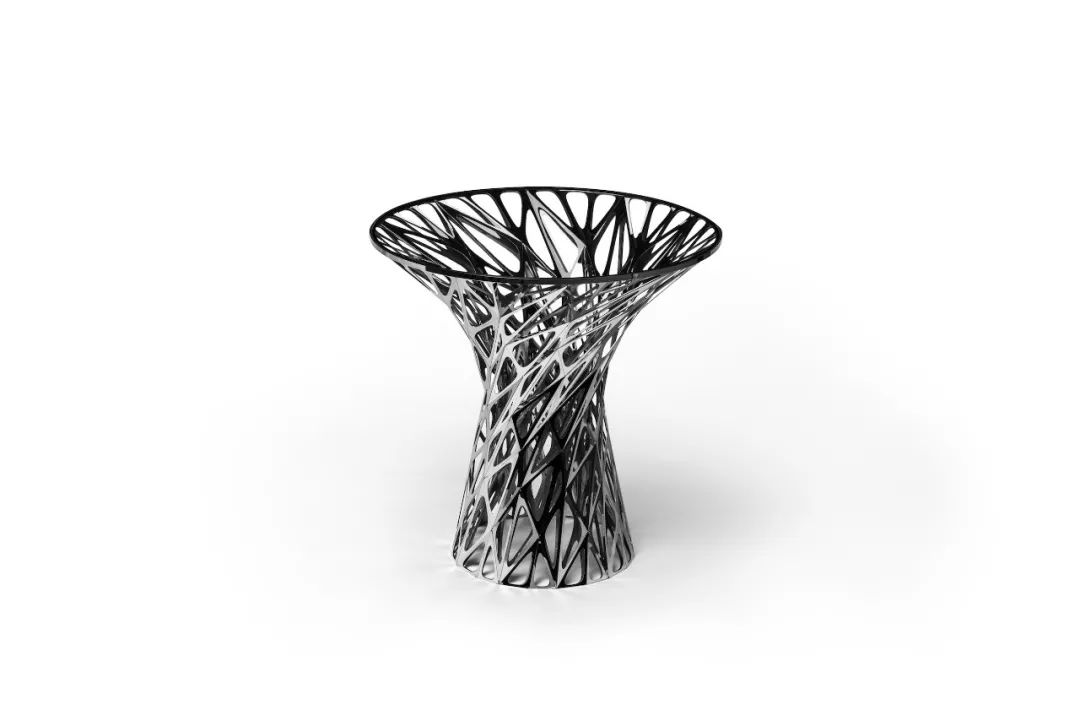
OBJECT #MT-T1-F-S(Mesh Tornado 旋涡桌)
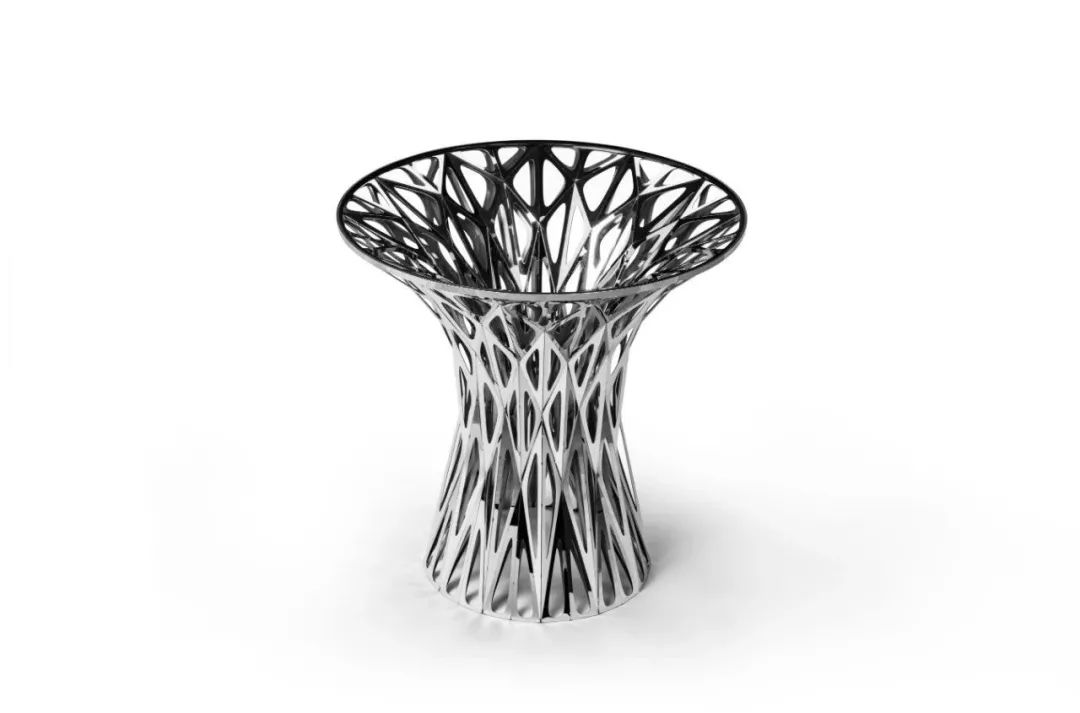
OBJECT #MT-T3-F-S(Mesh Tornado 旋涡桌)
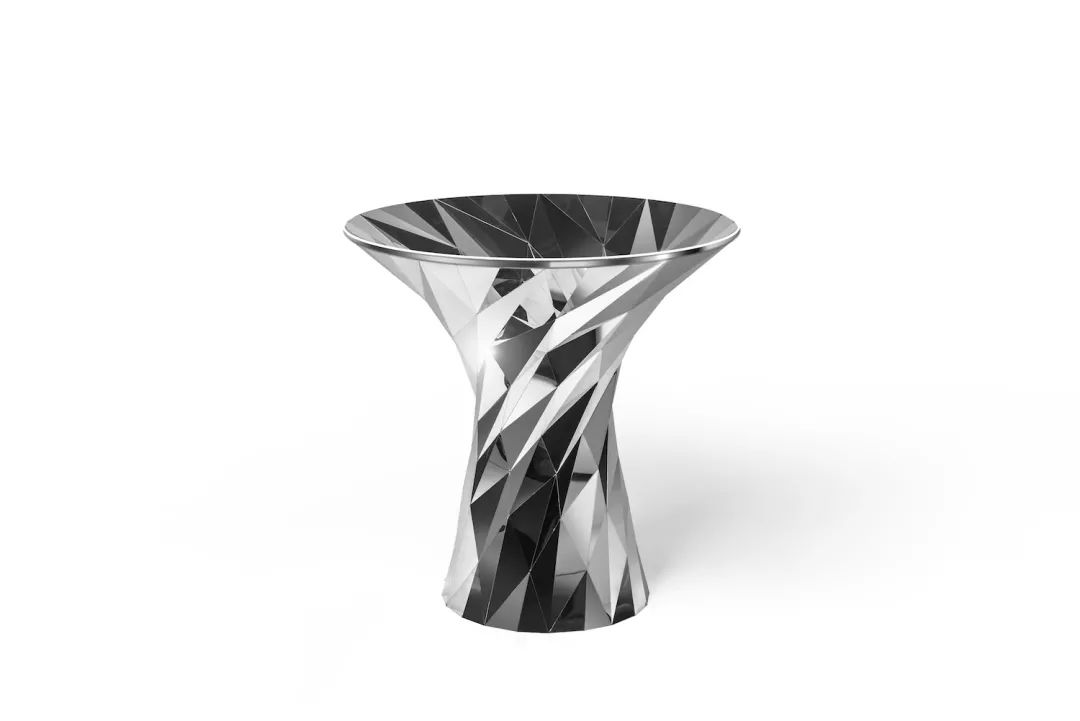
OBJECT #MT-T1-S-S (Mesh Tornado 旋涡桌)
材质:304镜面不锈钢、低反射玻璃
尺寸:L57 D57 H59 cm
限量版:10P (8P+2AP)
OBJECT #MT-T2-S-S (Mesh Tornado 旋涡桌)
材质:304镜面不锈钢、低反射玻璃
尺寸:L57 D57 H59 cm
限量版:10P (8P+2AP)
OBJECT #MT-T3-S-S (Mesh Tornado 旋涡桌)
材质:304镜面不锈钢、低反射玻璃
尺寸:L57 D57 H59 cm
限量版:10P (8P+2AP)
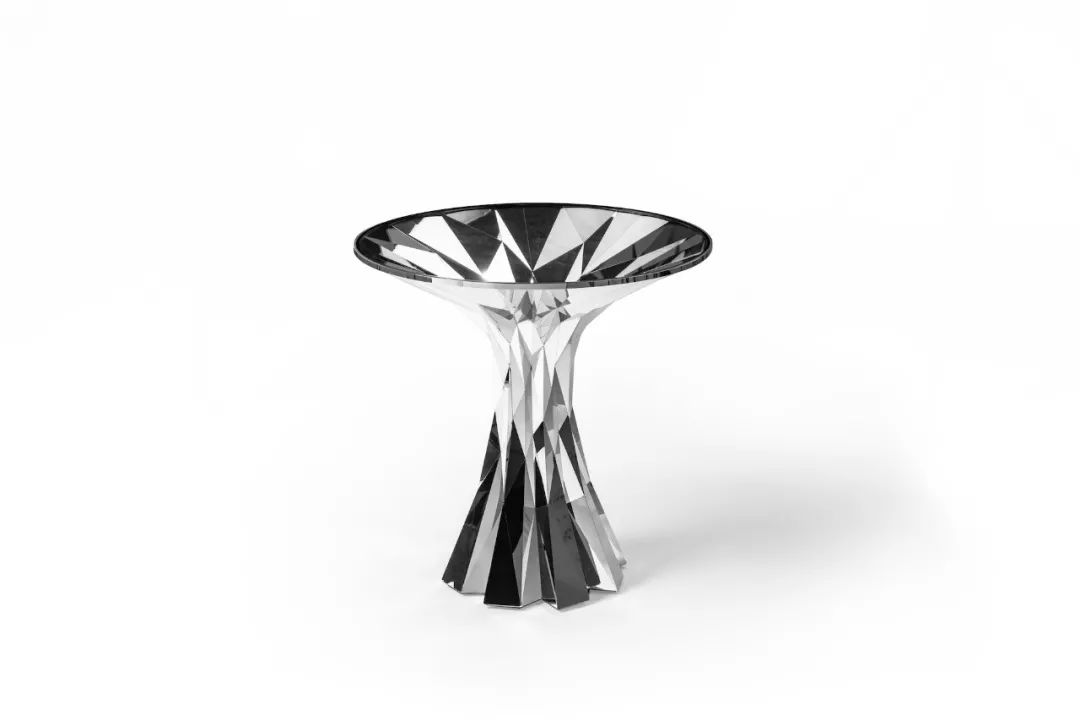
OBJECT #MT-T4-S-S (Mesh Tornado 旋涡桌)
材质:304镜面不锈钢、低反射钢化玻璃
尺寸:L57 D57 H59 cm
限量版:10P (8P+2AP)
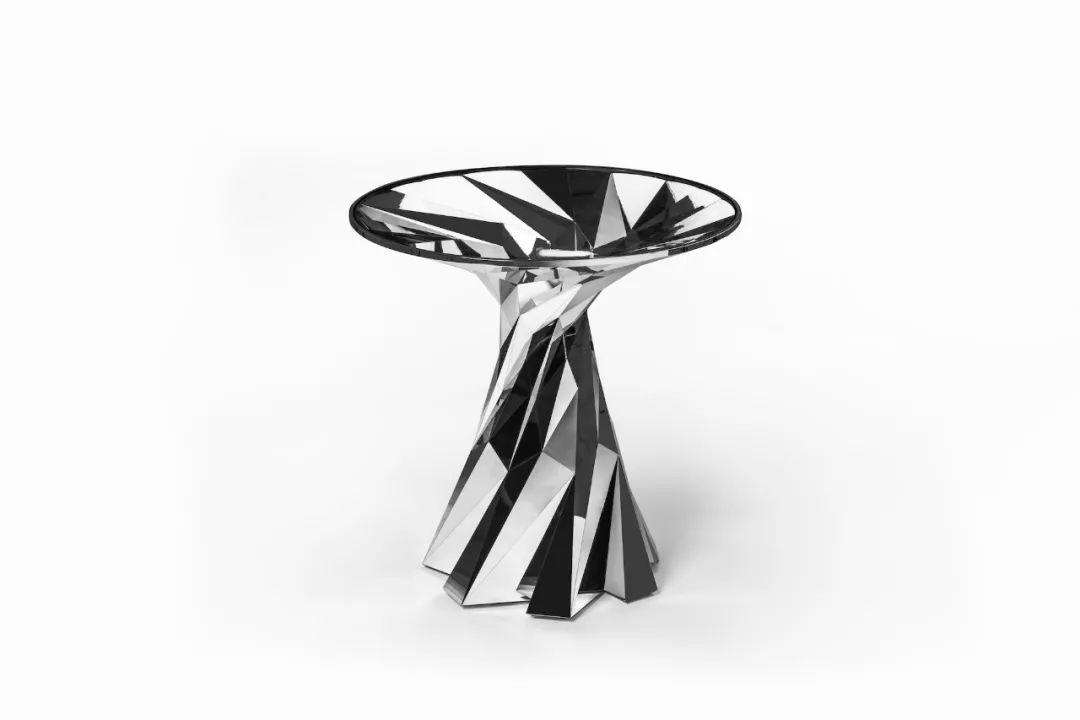
OBJECT #MT-T5-S-S (Mesh Tornado 旋涡桌)
材质:304镜面不锈钢、低反射钢化玻璃
尺寸:L57 D57 H59 cm
限量版:10P (8P+2AP)
OBJECT #MT-T6-S-S (Mesh Tornado 旋涡桌)
材质:304镜面不锈钢
尺寸:L57 D57 H59 cm
限量版:10P (8P+2AP) / 组
OBJECT #MT-T7-S-S (Mesh Tornado 旋涡桌)
材质:304镜面不锈钢
尺寸:L57 D57 H59 cm
限量版:10P (8P+2AP) / 组
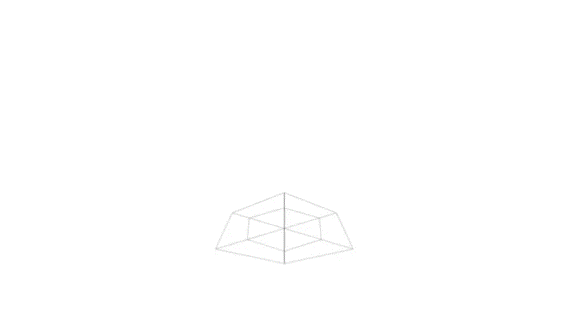
OBJECT #MT-T8-S-S (Mesh Tornado 旋涡桌)
材质:304镜面不锈钢
尺寸:L57 D57 H59 cm
限量版:10P (8P+2AP) / 组
而在另外一组以对称性为主的由多种算法混合形成以的合成桌几(Mesh Symmetry)作品里,上下四个支点彼此联结放射,自然而然形成接近三维梯形的骨架,同时结构的内在富有变化,梯形四面体内部是大小尺度不一的三角面互相连接,形成稳定结构。这是一场点线面之间的游戏,线面变化就像传统游戏“翻花绳”。这个结构逻辑也是张周捷先前一组桌面墙饰系列的延续。
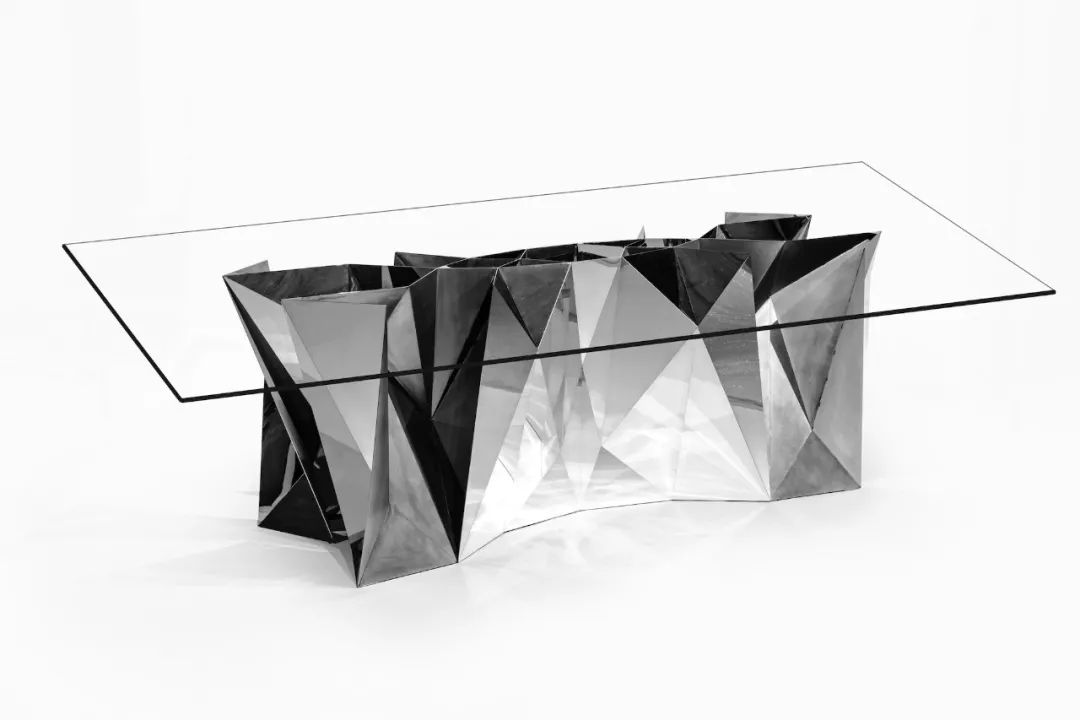
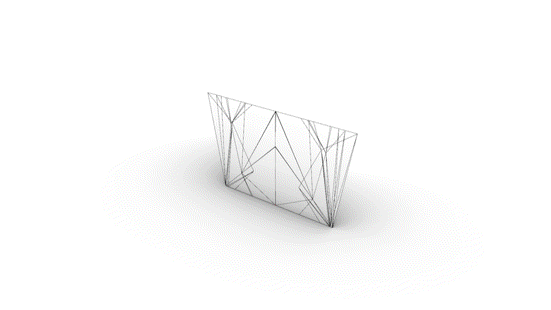
OBJECT #MT-S1-S (Mesh Symmetry 镜像桌)
材质:304镜面不锈钢、超白钢化玻璃
尺寸:L240 D120 H74 cm
限量版:10P (8P+2AP)
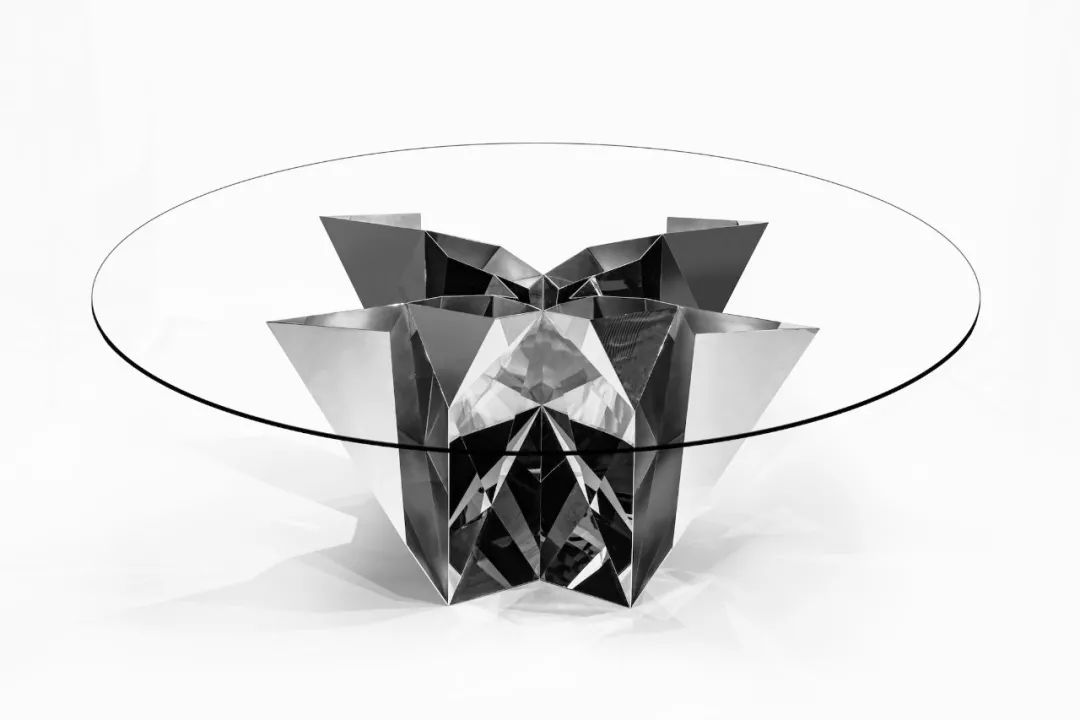
OBJECT #MT-F2-S (Mesh Symmetry 镜像桌)
材质:304镜面不锈钢、超白钢化玻璃
尺寸:L180 D180 H74 cm
限量版:10P (8P+2AP)
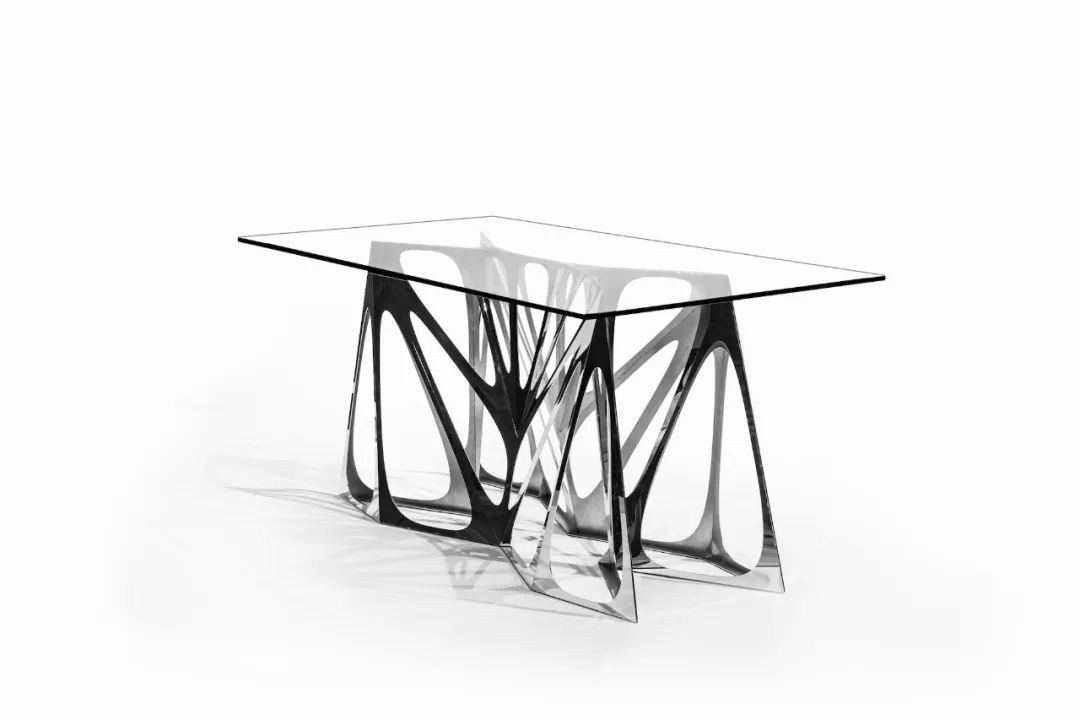
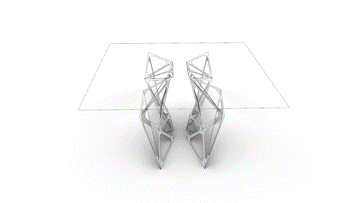
OBJECT #MT-S4-F (Mesh Symmetry 镜像桌)
材质:304镜面不锈钢、超白钢化玻璃
尺寸:L180 D90 H74 cm
限量版:10P (8P+2AP)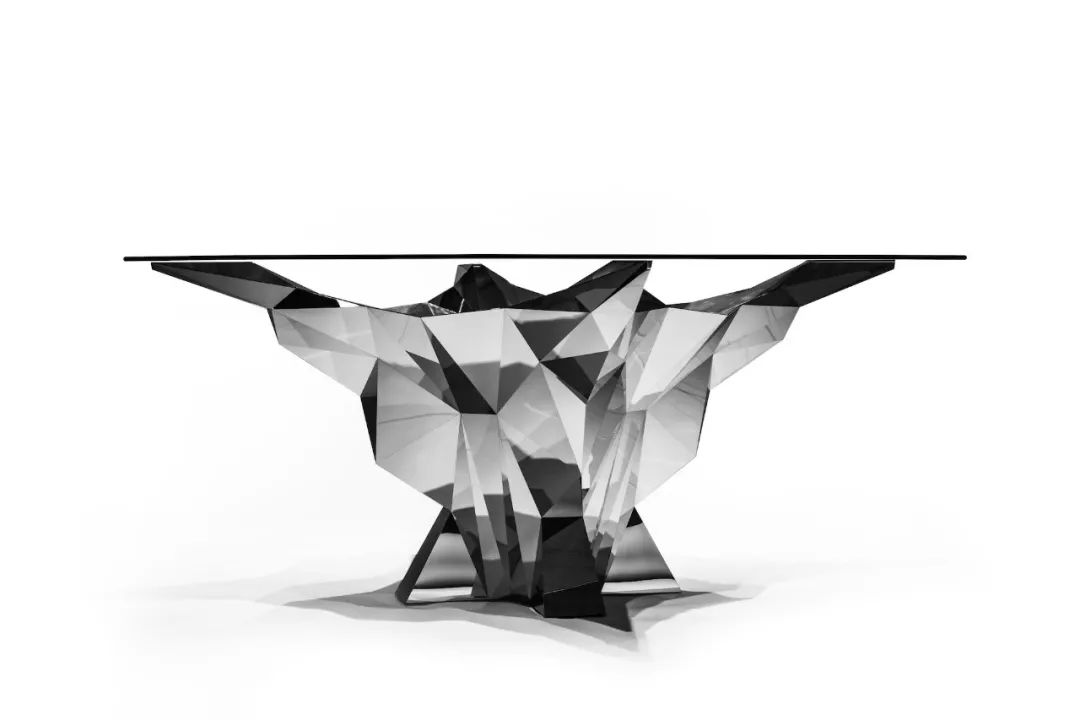
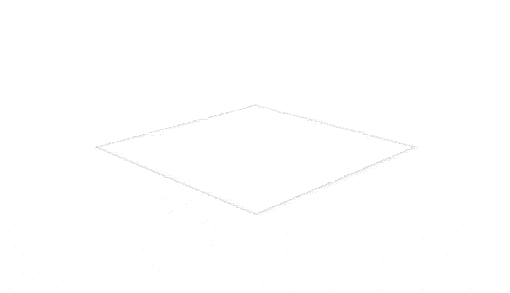
OBJECT #MT-F3-S (Mesh Symmetry 镜像桌)
材质:304镜面不锈钢、超白钢化玻璃
尺寸:L180 D180 H74 cm
限量版:10P (8P+2AP)
在本次亮相的作品中,最大体量的作品“细胞桌”(Mesh Voronoi)“OBJECTMT-V1”由10张独立桌子组合而成。同时,若将它们沿着桌面边缘拼合在一起,桌面如同几块分散的大陆重新交汇融合,长逾8米。最初它们都诞生始于一个图形“母胎”,计算机先基于室内空间生成了合适的点位框架,再分裂成“泰森”多边形——隐藏在数字世界里的变化恰似自然大陆冰川在千百年中的分裂、流动与变形。单张桌子满足单人或4人使用,当几张或所有桌子拼在一起又满足多人及群体交流使用。数字生成的流动之变凝固在金属打造的桌子中,又令现代的日常交流空间更加灵活。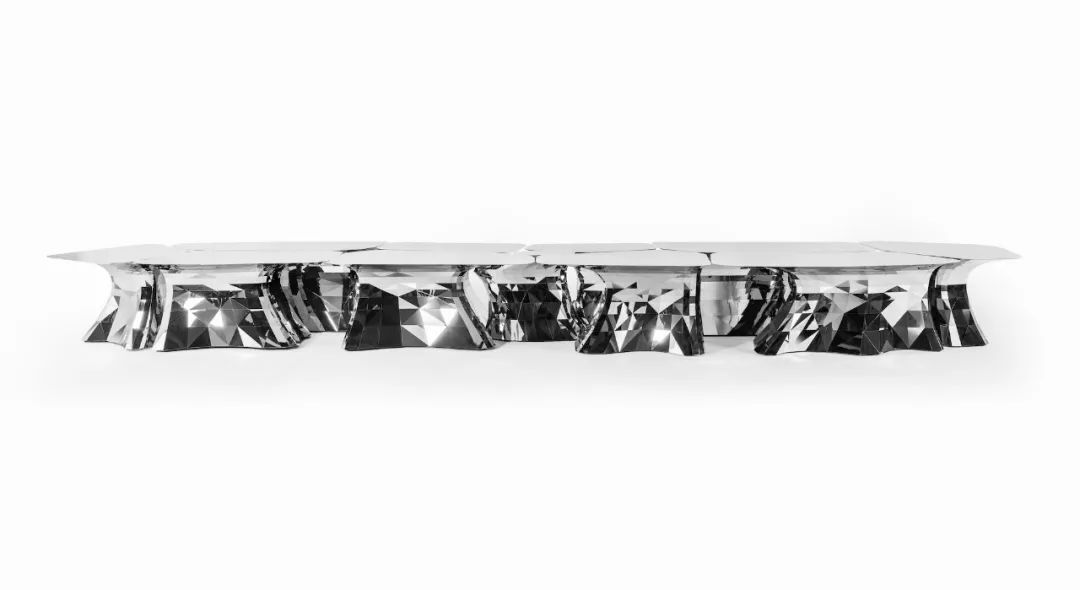
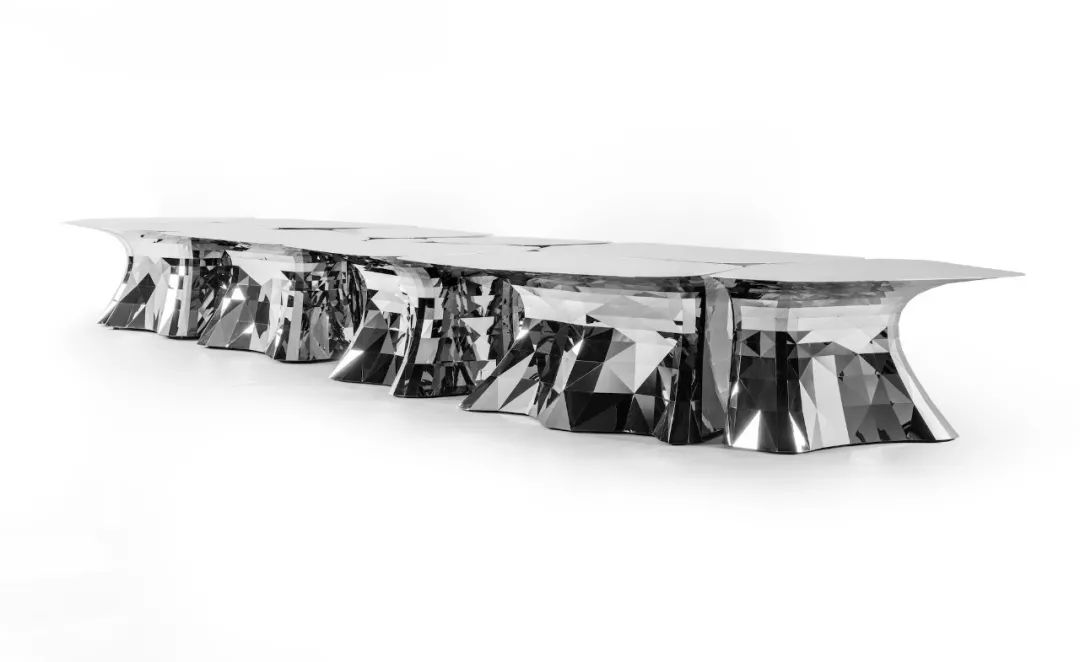
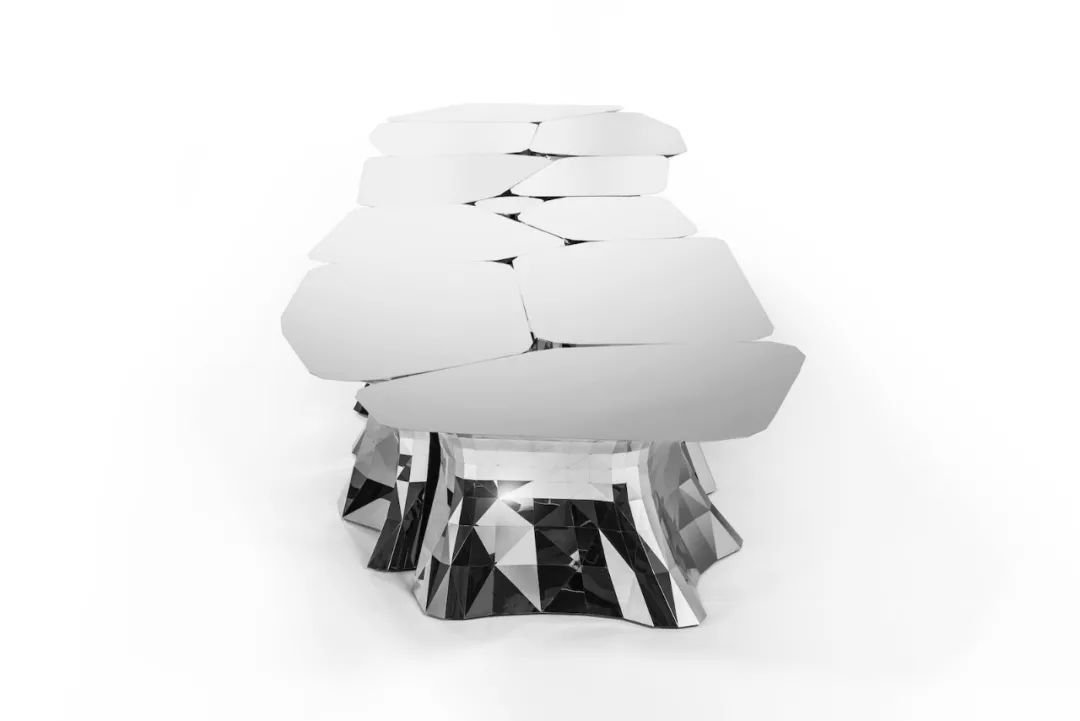

OBJECT #MT-V1 (Mesh Voronoi 细胞桌)
材质:304镜面不锈钢,配有可定制多功能插座
尺寸:L830 W210 H74 cm
限量版:6P (5P+1AP)
张周捷始终探索着数字设计语言的变体,有机形式不仅存在于大自然之中,也在计算机模拟事物的过程里无处不在。早在几年前,张周捷开始探索桌几的盘旋变化,而首次成型的实践则在2014年澳门The 13 Hotel酒店中。张周捷数字实验室为酒店打造了一批数字桌几,共计1000余件,因订单量庞大,每张桌子都需手工拼接制作,最终历时两年时间才完成。也是在这两年间,实验室深度优化了制造流程,在三角面结构上开拓出弯曲拼合的方式,让整体造型更加灵动自然。在本次个展上,酒店项目中的台盆、大小茶几、条桌等作品将一齐亮相,让人体会到数字设计得以融入高端旅居商务情境,同时与本次新品形成对比,从细枝末节里发现数字制造工艺的迭代过程。
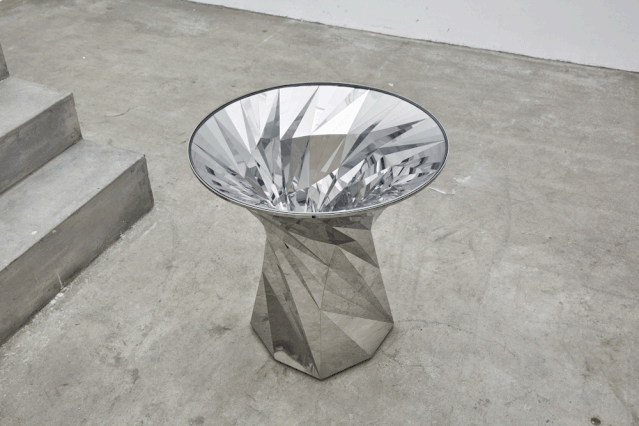
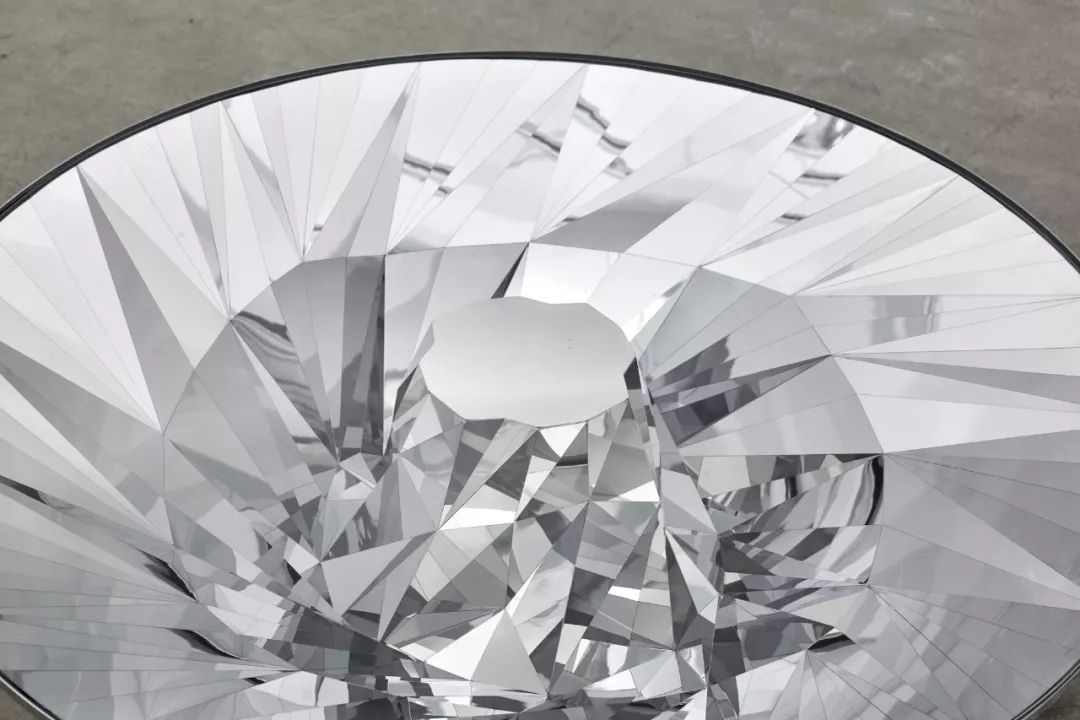
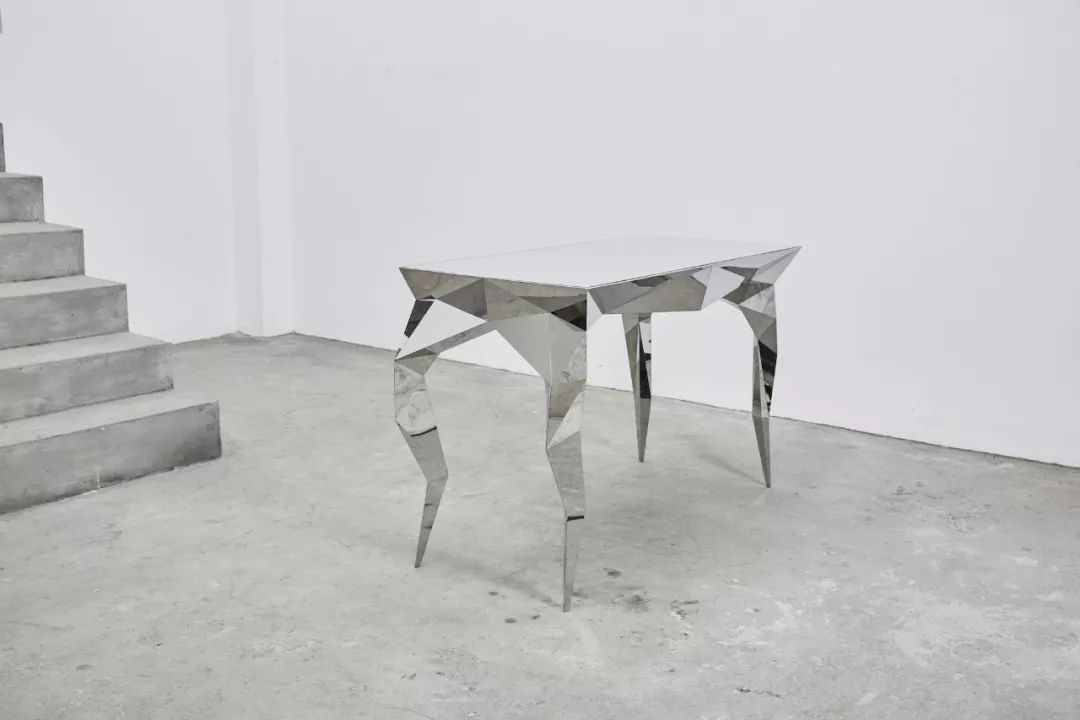
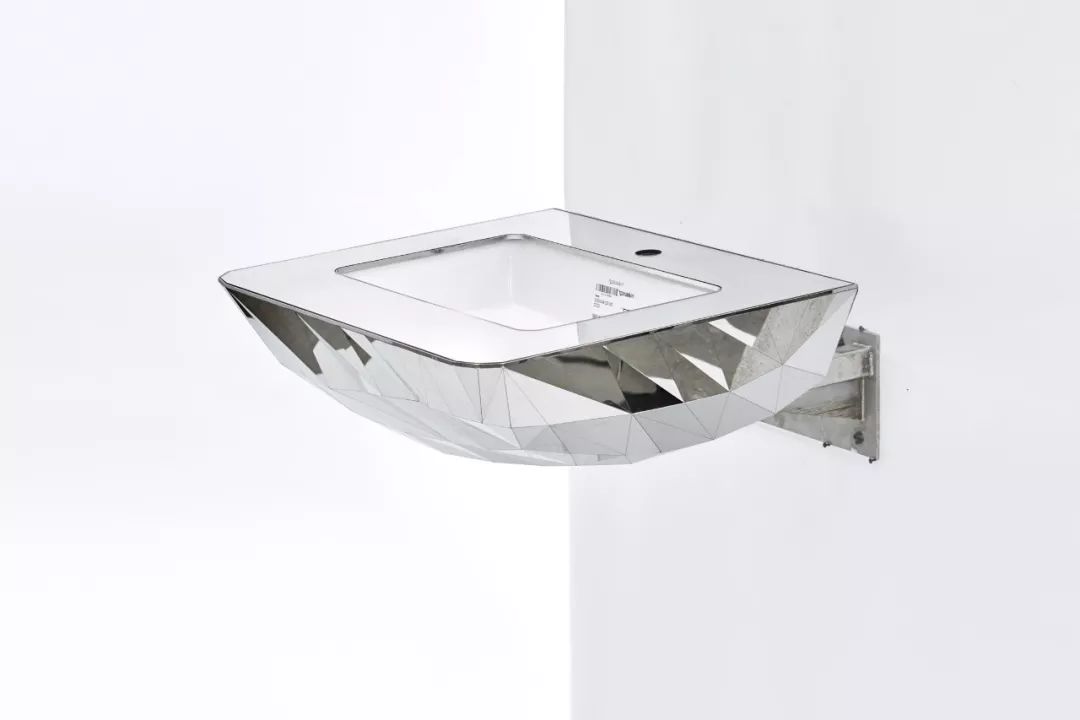
数字生成桌几的涡旋变化在2014年澳门酒店项目中首次得到应用,此为该项目的部分定制家具。
本次个展是2019年“环同济设计周”的重要展览单元,同时展览落脚在建筑师袁烽(同济建筑与城市规划学院建筑系教授)打造的数字化建筑Fab-Union Space内,技术创新、数字设计与日常生活之间的间隙都在这些共有的背景中消弭。让我们保留一些想象力,你既可以在展览上感受到全新的数字技术如何打造日常之美,数字世界又如何相通自然,也会重新思考一些约定俗成之物,比方“桌几”的由来。
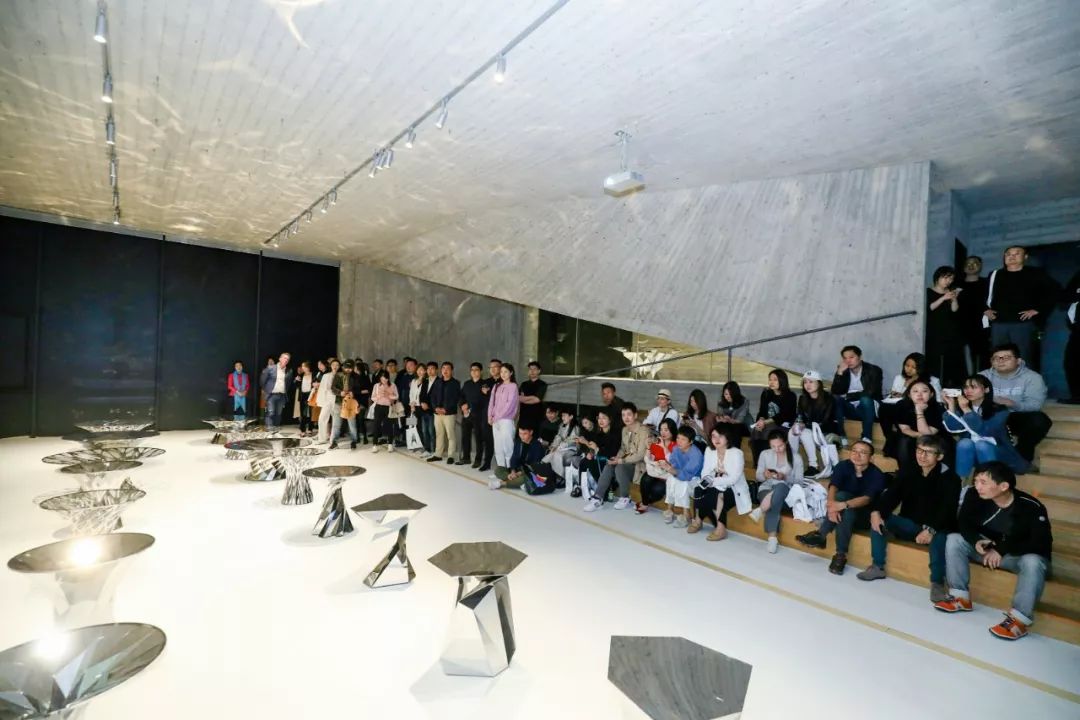
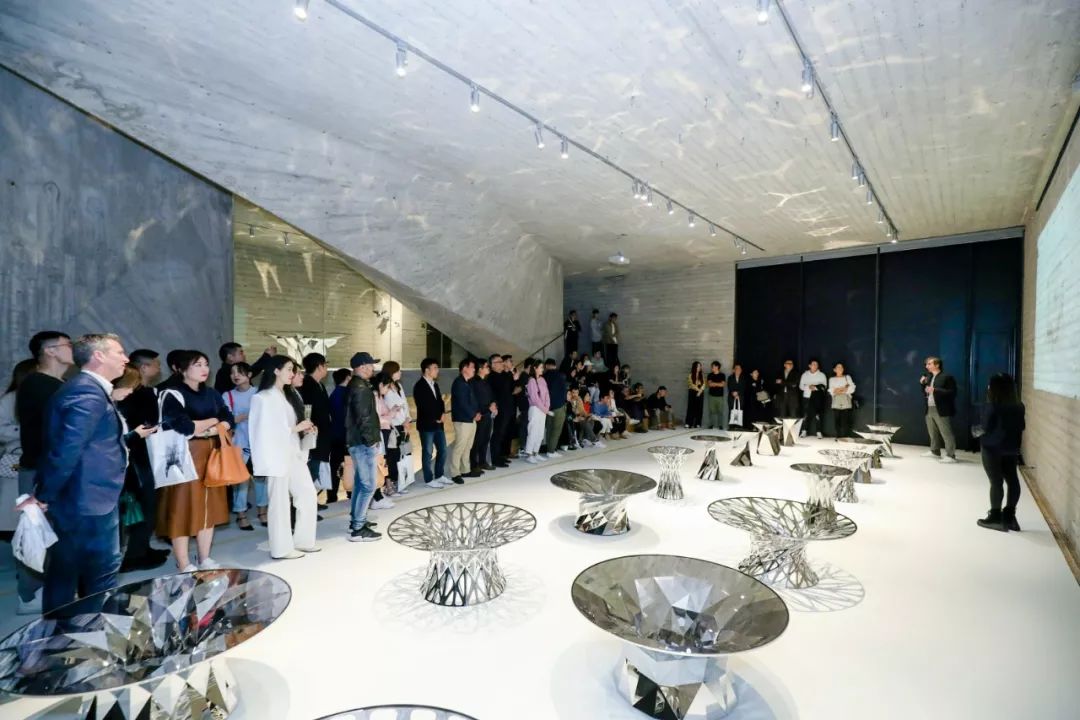
Let’s start with a question about the definition of furniture - how do we distinguish between different tables? You may think it is determined by body shape and size, since side tables are small and tables are big. Tables play such an indispensable role in people’s daily life, yet their function seems quite simple. In designers’ hands, tables are full of possibilities. The differencein "design" is reflected most in the form and size. However, when computers work as a part of the design process, the result of design can be infinite - and that’s what we want to present in the exhibition"Tables?". Zhang Zhoujie, an independent designer and digital artist, brings his new works with the attribute of "table" after exhibiting aseries of high-profile public sculptures, dynamic art devices, seats, fruitplates, and other functional artworks.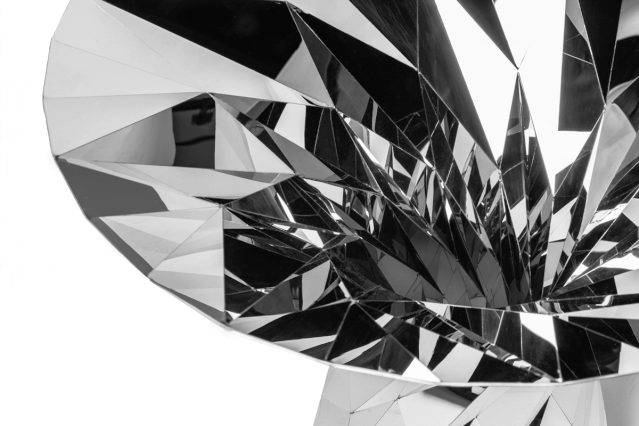
Based on his rich experience in digital design, Zhang sums up the common forms of existing tables, and finally summarised in four kinds of ‘logic’ of table leg structures that can meet users’ needs and perform well after the manufacturing process, and they are: symmetry, column, four feet structure and symmetrical column. "Logic" is the core of digital design as well asthe clue of computer calculation, as faith guides people's actions. In this series, Zhang concluded a new standard of digital design: logic should have "applicability", for there can be countless kinds of logic, but how to apply them to the real world is the real challenge.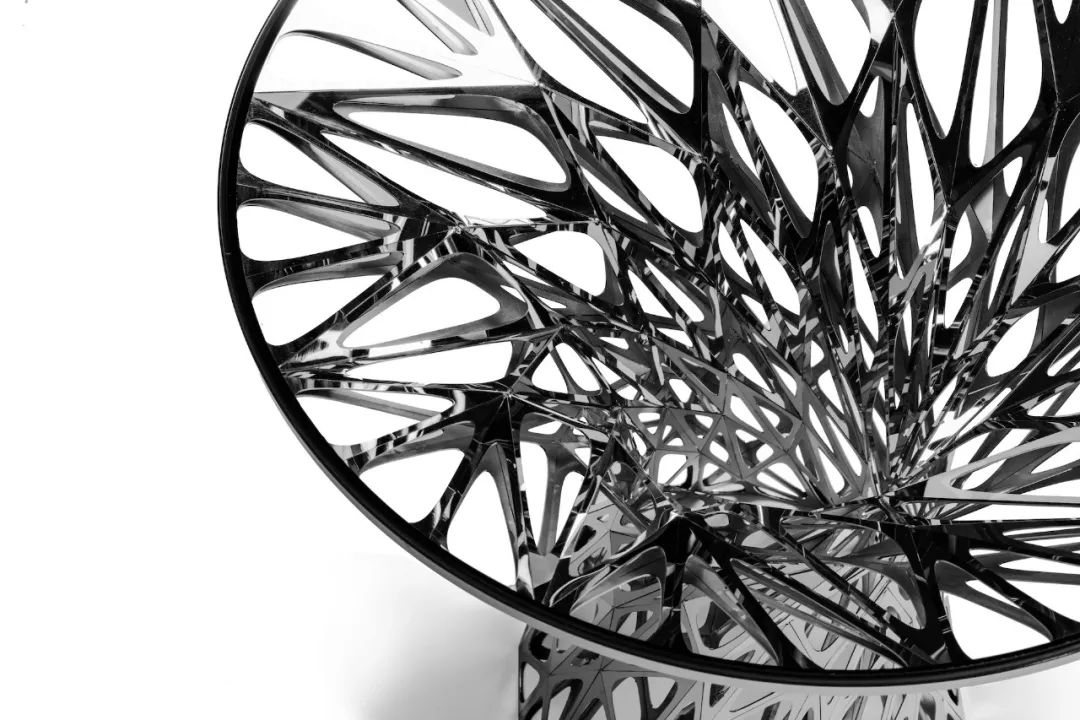
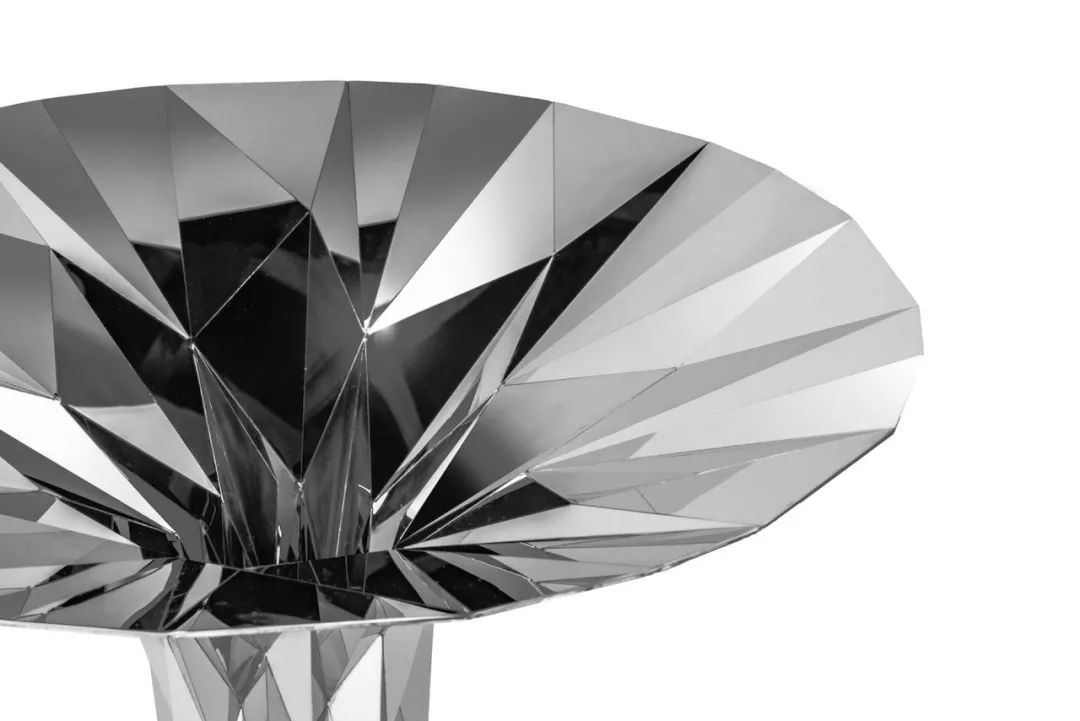
Therefore, you can see that the legs generated by symmetry are suitable for a four-persontable or a long table, while the columnar leg spirals up to form a side table; the legs structure based on symmetrical column logic supports a series of multi-person long tables. Later, with the help of a perfect manufacturing process, the table leg structure is made up of stainless steel slices oftriangular surface and plane surface. The whole table appears more smooth and organic with the curved part.
Now the tabletop is just a basic component of the table. It does not need to be decorated or made of complex materials. A clean and durable glass tabletop canset off the charm of table legs. The rich results from computer calculations enable this series to fulfil different needs and carry out individual customisation.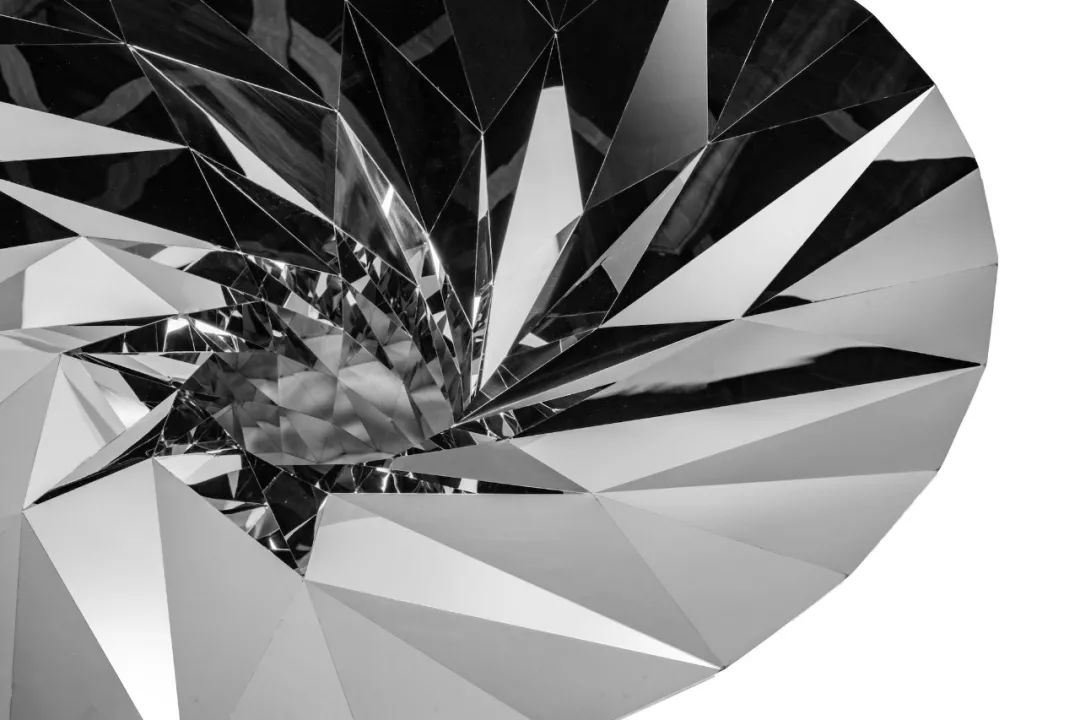
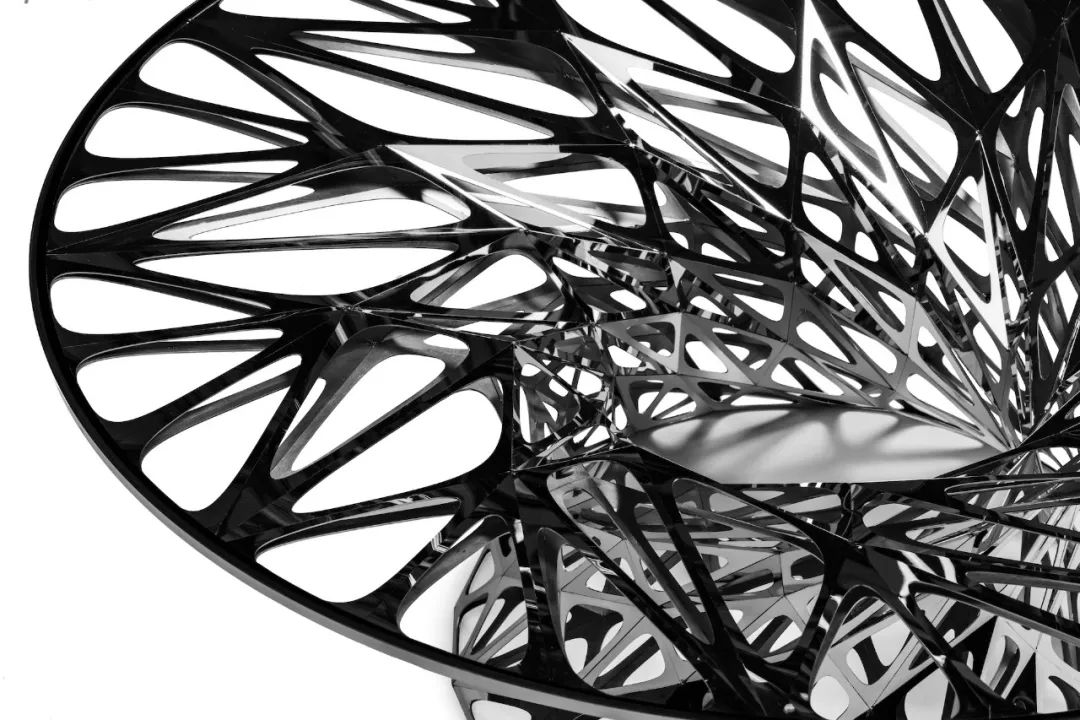 Among all the works of this solo exhibition, the largest table - “OBJECT #MT-V1”, is composed of 10 independent tables. When they are joined together along the edges of the tops, the top is like several scattered continents converging again, and the length is over 8 meters. Initially, all shapes came into being from an original graphic. Then the computer formed a polyhedron based on the lines and planes between five points, and gradually separated several polyhedrons in the subsequent evolution process. This change hidden in the digital world resembles the split, flow and deformation of the natural continental glaciers during thousands of years. A single table can be used by one to four people, but several or all tables can be put together to accommodate a bigger group. The flow of digital numbers solidifies in the metal table, which contributes to a more flexible communication space nowadays.This solo exhibition will be held from Nov.1 to Nov.24 in the Fab-Union Space operated by Yuan Feng, the representative of the parameterised building. The tables designed by computers and the building itself jointly drawing a living map of the intelligent future.
Among all the works of this solo exhibition, the largest table - “OBJECT #MT-V1”, is composed of 10 independent tables. When they are joined together along the edges of the tops, the top is like several scattered continents converging again, and the length is over 8 meters. Initially, all shapes came into being from an original graphic. Then the computer formed a polyhedron based on the lines and planes between five points, and gradually separated several polyhedrons in the subsequent evolution process. This change hidden in the digital world resembles the split, flow and deformation of the natural continental glaciers during thousands of years. A single table can be used by one to four people, but several or all tables can be put together to accommodate a bigger group. The flow of digital numbers solidifies in the metal table, which contributes to a more flexible communication space nowadays.This solo exhibition will be held from Nov.1 to Nov.24 in the Fab-Union Space operated by Yuan Feng, the representative of the parameterised building. The tables designed by computers and the building itself jointly drawing a living map of the intelligent future.









